
We have spent a lot of time in the Lowcountry of South Carolina. Braydon and I have been coming to this area for twenty years now. But for the past four summers we’ve spent significant time in the Charleston/Beaufort/Sea Islands of the South Carolina Lowcountry as a black-white transracial adoptive family. We’ve had many blog readers, friends, and acquaintances — curious about it — ask us to blog about our experiences with, and perspectives on, being an interracial black-white family traveling in the deep South. I’ve put off writing about this for a long time because I don’t want to offend or insult anyone. But I’ve decided to go ahead and write about it tonight, and I’ve asked Braydon to do the same. With me having grown up in northern New England (the north of The North!), and with him having grown up in Georgia (the deep, Bible-Belt, south of The South!), we are coming at this from two different perspectives. We’ve spent hours upon hours talking about this subject, and this post will only scrape the surface, but it is an attempt to answer the basic questions we’ve been asked so often: ‘What it is like being YOU there?’ and ‘What on earth is the appeal?!’ We wrote our posts at the same time tonight, but without seeing what each other had written.
Here goes~
* * * * * * * * * * * * * * * *
HEATHER’S POST
The other day, while we were walking on the beach, I had a long conversation with Kyle about his thoughts and perspectives on our time in the South. I was pretty astounded with what he had to say — both in terms of how incredibly articulate and sophisticated his answers seemed to me to be (granted, I’m biased, I’m his mother!, but I do think his thoughts and feelings are pretty incredible for a 10-year-old boy!), and in how much his own observations totally lined up with my own. Here are some tid-bits from that conversation:
I asked Kyle what is more comfortable for him— being black in the South, or being black in the North. His answer: he feels more comfortable being black in the South, but his thinking meshes more with people in the North. He thinks that people in the North have values more in-tune with his own (“They’re Union! They fought to end slavery! We wouldn’t be our family if it weren’t for The North!”), but… interestingly enough… he feels more comfortable, being black, in the South. Specifically, he thinks Northerners are more liberal and progressive (which is in-line with his own views), but he feels more at ease with Southerners. When asked to explain why he feels more comfortable in the South, he said: “There are more black people in the South. But it isn’t just that there are more black people here, it is also that there is more black history and black culture here.” I was amazed at his ability to discern the differences between thinking and feeling, and I was stunned by his explanation regarding history and culture. As a white, progressive, anti-racist person, I agree with Kyle’s assessment 100%. It should also be noted that when we’ve been in the South during our summer visits, we’ve placed a huge emphasis on the black history and black culture of the area. So, Kyle’s experience with the South is not white-washed… if anything is is “black-washed” (if that is even a thing). But, like Kyle, I think the North is more in-line with me, but in many ways, I feel more comfortable in the South. Isn’t that so interesting?!
Next I asked Kyle this: “Now, specifically, just in terms of being a member of a black-white transracial adoptive family, where are you more comfortable — as our family? The North or the South?” His answer was clear and conclusive: “The North. Definitely.” I think that is interesting — and it is the same answer for me — I feel more comfortable, as “us,” in the North.
Lastly, I want to share what Kyle had to say about one more subject: being a kid. “Now, if you can, putting aside the ‘black’ question, and the ‘transracial adoptive family’ question, just in terms of being a KID — where are you more comfortable? The North or the South?” He said that was by far the toughest question and that he couldn’t answer that conclusively because he had very mixed thoughts and feelings about that one. We talked about it for a long time. “Expectations for behavior are more more strict in the South,” he said. “What kids do in the North would never be allowed in the South… The things that adults let kids get away with in the North just don’t happen in the South… Kids are expected to be much more polite and have good manners in the South.” He went on to explain that much of the behavior of the kids he knows in the North would never fly down South; that kids get away with “so much!” in the North; and that the lines between kids and adults are much more rigid in the South. All of this was very clear in his mind. The only question for him was which place he preferred to be — as a kid. There is a fine line between high expectations leading to security and happiness versus high expectations leading to oppression. And, despite us circling back to this conversation numerous times in the past few days, the jury is still out for him in terms of what he prefers as a kid — the North vs. the South. He does say, however, that he is leaning toward thinking that, as a kid, he’s more comfortable in the North because “there is more freedom for kids in the North.”
Of course, in truth, none of this can be separated out. Kyle is a black, transracial adoptee, kid, visiting the South. We are a complex family spending time in the South. It is messy.
As a family we’ve spent a lot of time talking about all of this, and one thing we do all agree on is this: while we love visiting the South, we would not want to live here. It is very important to remember that our time in the South Carolina Lowcountry is spent on purpose, with some very specific intentions. I think if you understand that, you can understand why we love it here.
As a black-white transracial adoptive family we always — always —stand out. At home, we get weary of the stares and questions and never-ending, incessant, exhausting attempts — from just about everyone it seems — to try to ‘get into it’ with us— to try to approach us, find out out story, figure out our deal, probe and probe and go deeper and deeper to know what we’re all about. We can’t get through the grocery store, or go anywhere, without people looking at us (often staring at us), and regularly coming right up to us trying to start conversation with us (often even when we clearly don’t want to get into it). Honestly, it is exhausting. This is what we signed up for, though, (at least, Braydon and I signed up for it), so we (at least, Braydon and me) don’t complain. It is what it is. And we (especially our kids) don’t really know any different. But, the biggest pull, for me, to the South in the summer is, quite simply: just to get a break from it. Here’s the thing: in the South, people just don’t ‘get into it’ with us. They leave us alone. They may not like what they see in us, or maybe they do, but regardless, we’ll never know because you know what?! They don’t try to go there with us. They treat us just like everyone else. In stores, restaurants, on the beach, in the city, or anywhere, we are treated just like everyone else. We are treated politely and with Southern hospitality. But nobody asks us anything. And hardly anybody stares. We are just left alone. Which is… honestly… just so incredibly wonderful.
You know what? It is totally possible that they leave us alone because they are, in fact, giving us the cold shoulder. Maybe they don’t stare because they can’t stand to look at what they see. That is entirely possible. But, for one month a year, I don’t even care what the reasoning behind it is— I just like being left alone.
Plus, layered onto all of this, is the fact that for the past two years we’ve lived on campus at Lehigh. So, there, we are even less anonymous. It is an awesome and amazing experience to live there — in such a tight community — where everybody knows us and everybody is looking out for us. It is incredible. But, again, everybody want to get into it with us, all the time. Then, another layer: the blog. We are recognized places: “Oh my gosh! I read your blog!!!” We are the opposite of anonymous. Our life is like a crazy open book. We aren’t Brangelina, by any stretch of the imagination, but in our own little mini-world, we are pretty inundated. And, as much as this is probably a surprise to people who don’t know me well in real life: I actually am a person who prefers nothing more than being out of the spotlight.
Remember the lyrics from the theme song to Cheers? “Making your way in the world today takes everything you’ve got. Taking a break from all your worries, sure would help a lot. Wouldn’t you like to get away? Sometimes you want to go…
WHERE NOBODY KNOWS YOUR NAME.
That’s the South for us. Nobody know us. Nobody cares all that much. And we love that. They are polite and they keep is shallow and superficial, right at the surface. And, for one month a year, we are perfectly happy with that.
People in the South don’t pry. They are very polite. And superficial. This is, of course, a huge sweeping generalization (there are obviously many exceptions), but for the most part— truly— they just leave us alone. If we offer up information, they just take it for what it is, they don’t probe for more. “Our sons were adopted,” I might say. In the North that would immediately lead to: “Oh, from where? How old were they? Why Haiti? Tell me the whole entire story, I’m so interested!” In the South it will be responded to with, “That’s nice.” End of story.
I wouldn’t want that all the time. Because, for me, that is kind of awkward, and it feels extremely shallow and surface-level (and I’m not a shallow of surface-level person). But for one month a year? Yes please! For us, this is a respite and a retreat and a break that we thoroughly enjoy.
Do people stare? Yes, they do. But rarely. And not nearly as often as in the North. I will say, however, that when they do stare (in the South), it feels hostile. Just a feeling — just the radar working — but that is my feeling on it. When they stare in the North, my sense — again, just my own feeling on it — is that they’re staring out of curiosity (and it does not feel hostile; in fact, often, it feels the opposite of hostile— like a weird interest in us, but that they in some way like what they see).
Do we have racist situations? Not often. But sometimes, yes. The other day I overheard some horribly racist stuff at a sandwich shop. I was with Meera, alone, and these two white men were saying some horrible stuff within earshot. It was the worst overt racism I’ve ever witnessed. It felt scary to me. I felt sick to my stomach. I wanted to throw up. It was the only time that’s happened. And it was explicit and rough. On a regular basis, though, we don’t find overt racism in the South (at least we’re not witness to it and/or it isn’t happening directly to us). We do find a more conservative set of social values in the South. This is often overt, even with regards to race. In so many ways, truly, I find that — as horrible as it is — it often feels better than what goes on in the North with the “colorblindness” and all — all — that is wrapped up with that. Again, it is just for one month a year. I don’t think I’d ever choose to live permanently in the South.
Do we feel safe? Honestly… we are (purposefully) renting a house in a secure, gated community. This should send off all sorts of class cues. Classism, yes. Huge. In the South. And the North. Do I let my two black dreadlocked sons go alone into a gas station, to use the restroom, in the South? No. Do I do that in the North? No. Where are they safe?
Do we recommend the South for other black-white transracial adoptive families? Yes. If for no other reasons, to put the white folks in your family in the statistical minority for awhile. (So important!!!) And, also, because there is no place better than the South to teach your kids — black and white — about the African-American history. This is the epicenter of it all, folks, and this is a unique place to explore all that you have been, all that you are, and all that you could maybe be. Kids from the North should have at least one experience visiting the South — if for no other reason than to simply see how different the various regions of the U.S.A. are.
P.S. I just need to include this: another thing I love about our July in the South is this: Moms here don’t play with their kids. This is, of course, another huge sweeping generalization (and, of course, there are exceptions to this), but wow, do I ever love this. I find huge relief in spending a month of my year here where the Exceptional Mothering (in my opinion: Excessive Mothering) is not in full swing as it is in the North. I feel like in this era of mothering — at this historical moment — the pressure on moms is extreme to be exceptionally incredible-enriching-playful-creative-to-the-Nth-degree Mommies. I am a mom who firmly believes in letting my kids play — by themselves. I will build a sandcastle or play bocce ball on the beach every now and then, but I do not play with my kids all day long. For the most part, they play by themselves. And I don’t like being made to feel badly about that. In the North moms are all about playing with their kids, being fully engaged with their kids 24×7, making every single moment magical all of the time. I enjoy some time in the South, where moms rarely do that. Moms here sit in their beach chair, diligently feed their kids sandwiches, and let them play. All day long. That’s my kind of place. I enjoy a break from the mothering madness that is The North. (And I think my kids do too!) So, for me, this is another aspect of the “break” that our July in the South Carolina Lowcountry provides me.
* * * * * * * * * * * * * * * *
BRAYDON’S POST:
I was born and raised in the South. Some would not really consider Atlanta the South, but when I was growing up there it was a lot more like a sleepy southern city than it is today. Although my parents are from the North, everyone I knew, all my friends, and everything I identified with was purely Southern. I did carry a little outsider sense of things, but I am pretty sure I understand the South, despite having not lived there for over 20 years. The South remains in your blood even when you leave. Even when you try to get it all out of you.
We’ve had many discussions about what is the difference between the North and South. Heather believes that the North is fundamentally represented by the Protestant Ethic. I get that and it resonates with me. I believe that the South’s foundation (and I mostly mean the White South) is based in God, Family and Tradition. And I believe that if you focus in on those three things –in reverse order – that the way the South works becomes clear (including things that continue to be problematic), including why the South continues to be upset by the American Civil War.
Which raises the question, if we understand things about the South, why would we bring our bi-racial black and white family to the South? Why on earth would anyone bring their black kids to the center of historical racism in the United States?
Well – we don’t live here – we’re visitors. I am confident we would not live here. But, as visitors, it’s an important experience for our whole family. An experience of living history and of a different culture.
One of the interesting things about the South versus the North is that in the North, stratification and racism is less visible. White people work hard to come off as accepting, not-racist and that equality is important. That’s despite the fact that racial and class segregation in the North is alive and well. I think that is sometimes easier and sometimes harder.
In the South, people are just upfront with their acceptance of stratification. In some cases, approval, in some cases disapproval, but in all cases, open recognition. There is just an openness to it. My theory is that this recognition is rooted in those tenants of Southern culture – Tradition, Family and God. Whatever the cause, just walking into a store, you can sense it.
For our family, one of the key differences we see is this: in the North, we are kind of considered a special, exciting and valued thing – a bi-racial family (I am not saying I think that’s ok or that we like that – but it’s definitely noticeable – I mean – when there is a certain kind of giddy excitement to have our boys over for a play date and then the pictures are posted in a large way on Facebook – it’s kind of obvious). In the South, we are intentionally ignored.
In the South, nobody asks about our adoption. Nobody wants to get to know us or inquire further. We are not shunned exactly (maybe due to our class status, I don’t know), but we are very much not a special thing.
In the North, white men chat with me about our adoption story and black men give me the unofficial head nod. In the South, I get neither – nothing. I think that’s Southern tradition speaking.
So – why would we come here? The American story and the Black American story is rooted here. The history of that story is living here; the experience of it is here. We may not want to live here, but how can we not visit?

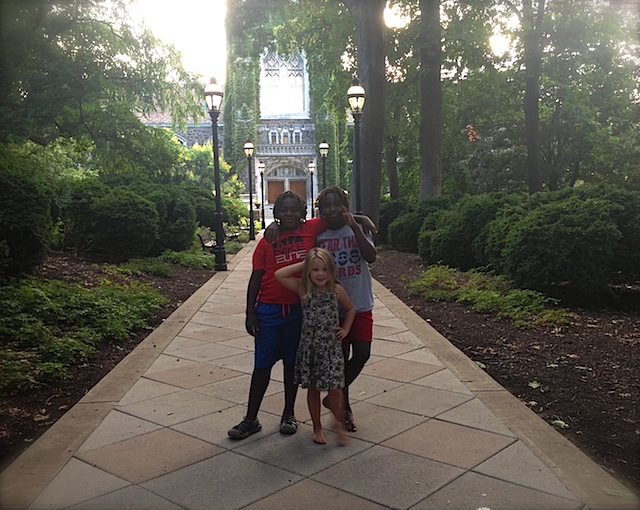
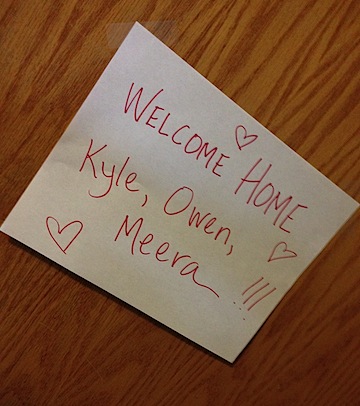
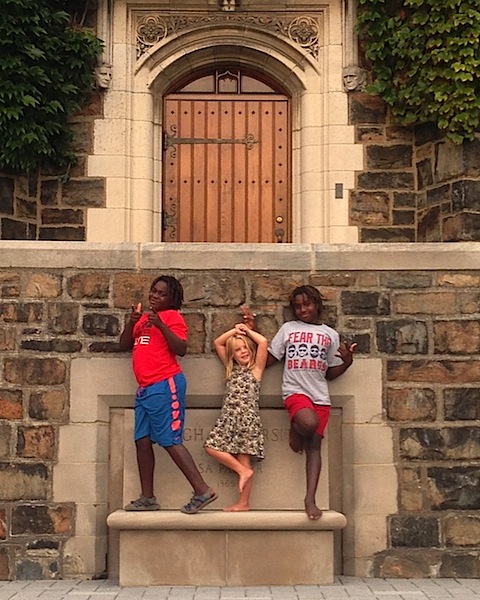


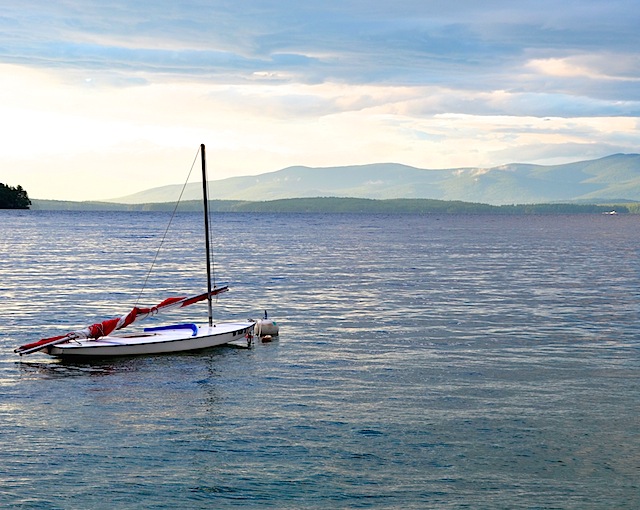

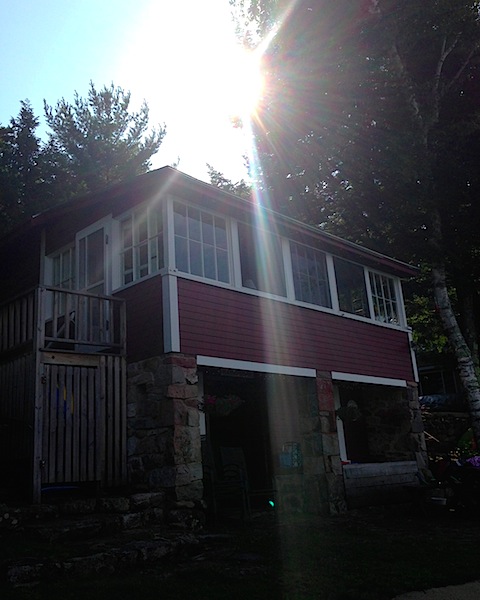


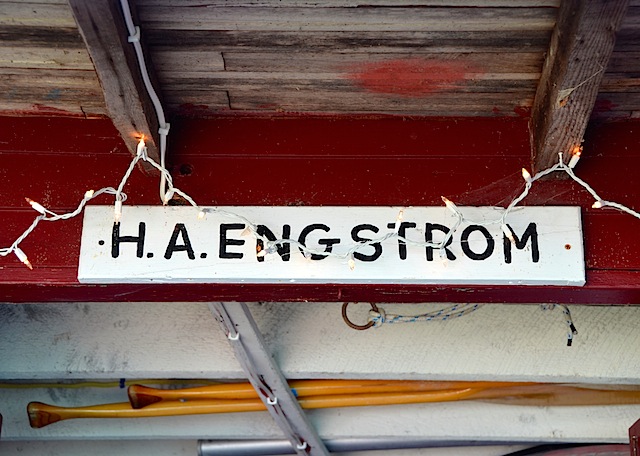
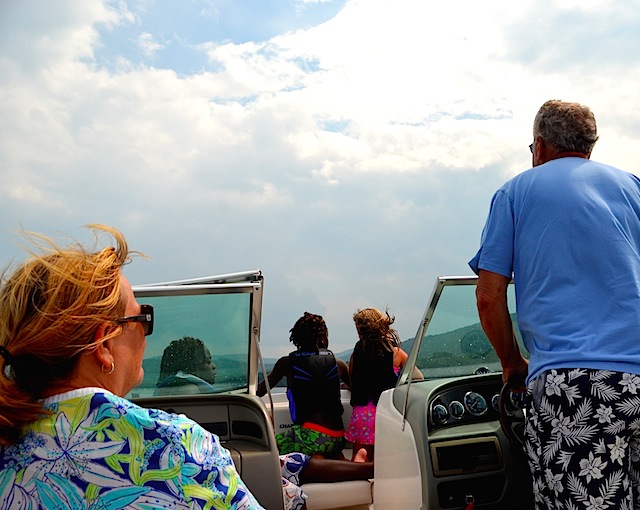
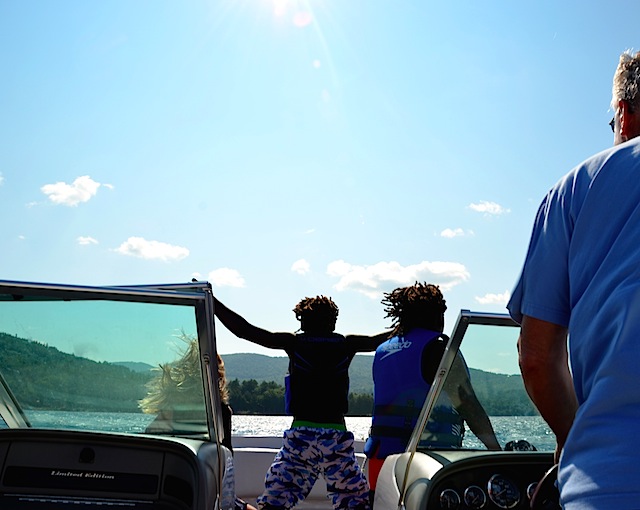

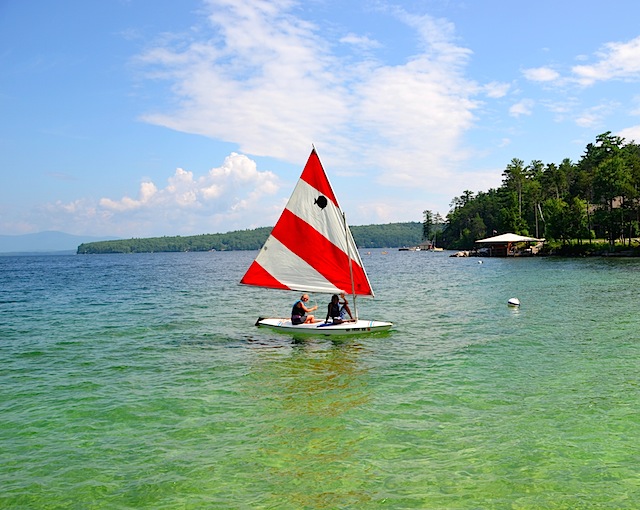
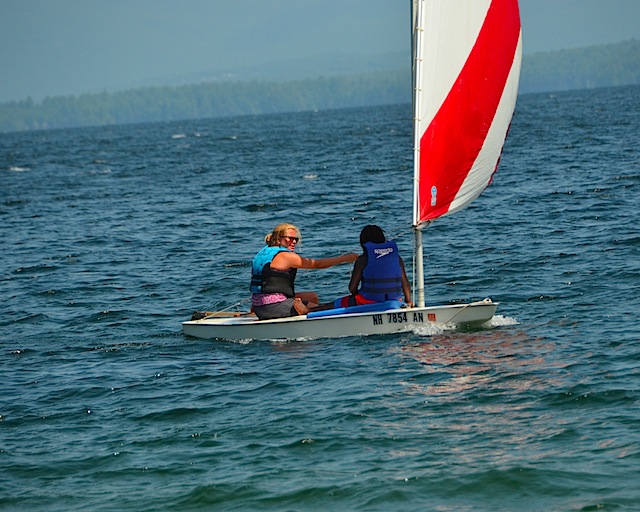
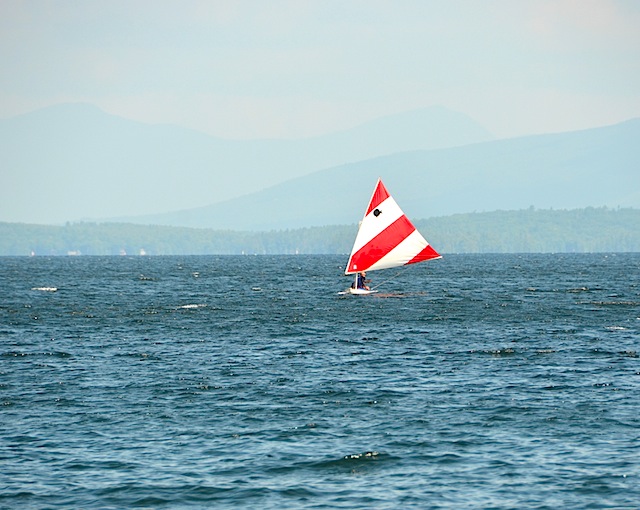
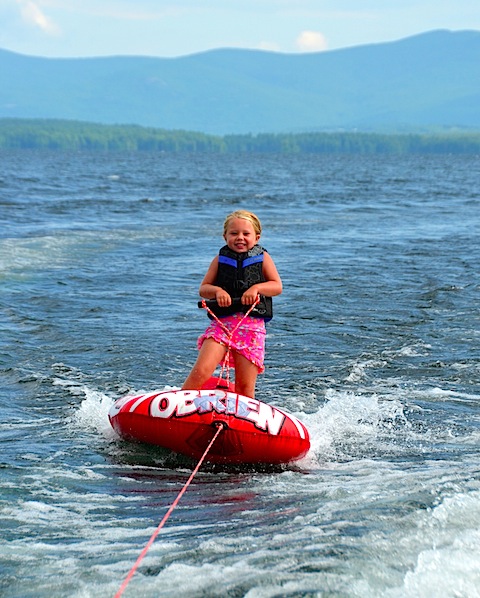
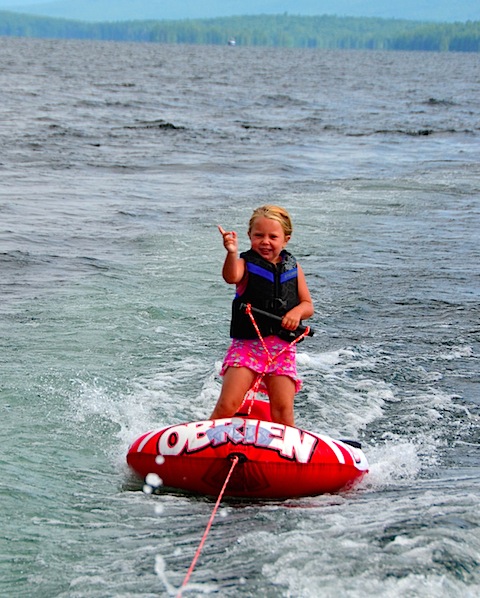
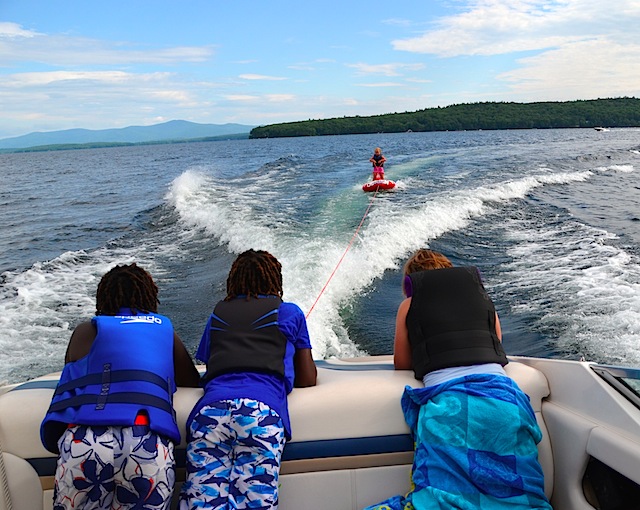
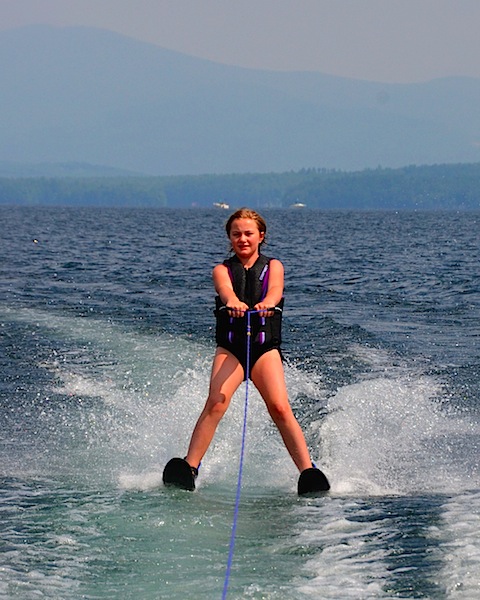
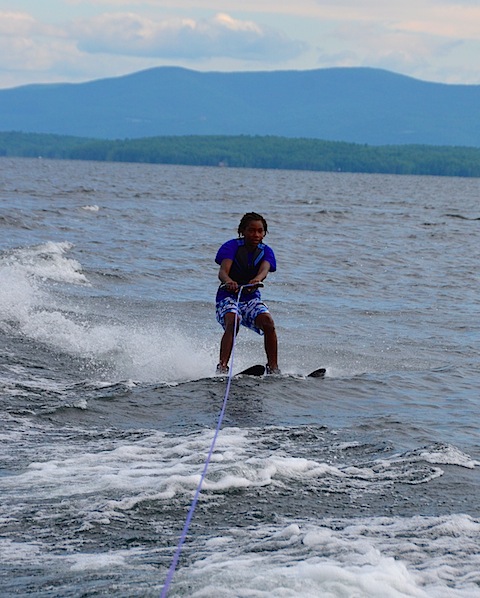
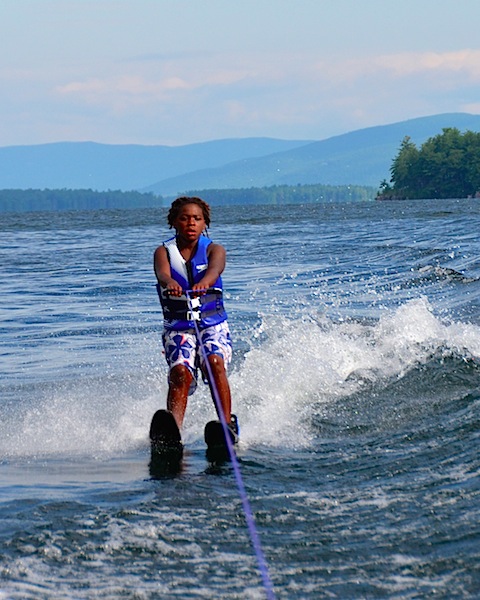
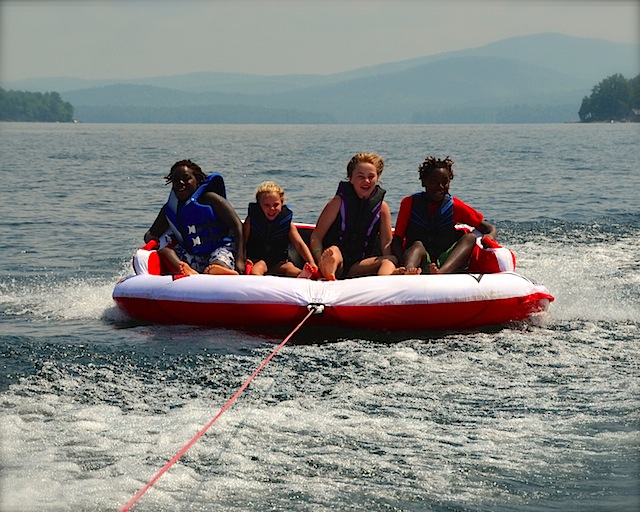
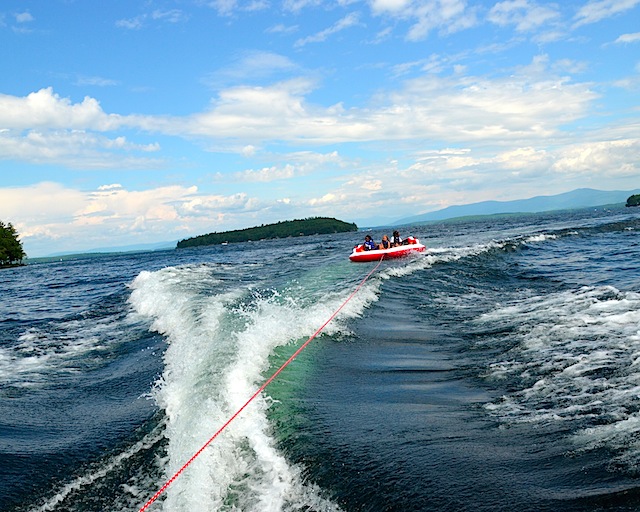
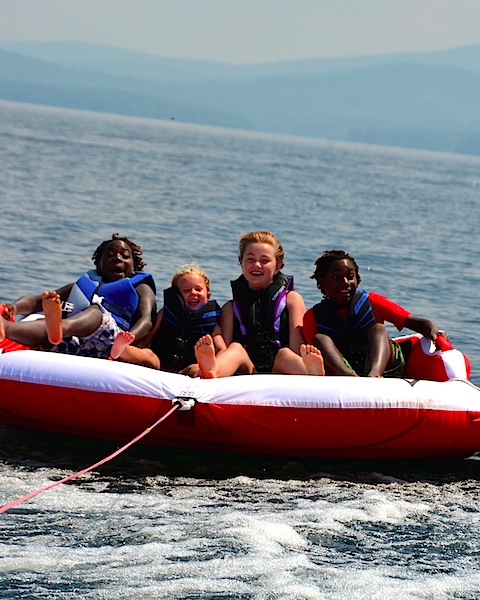
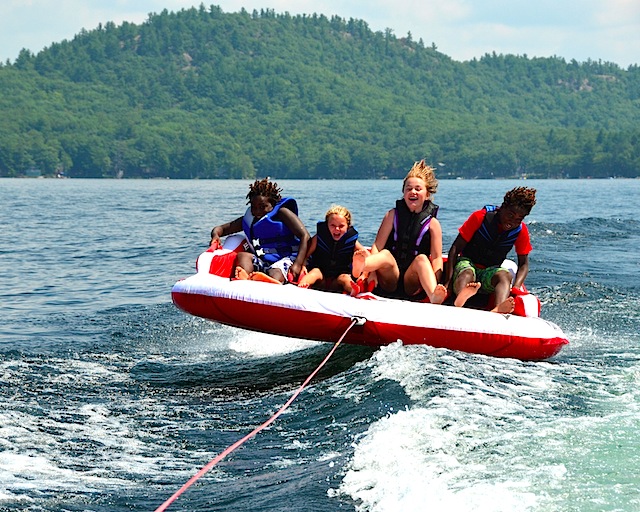
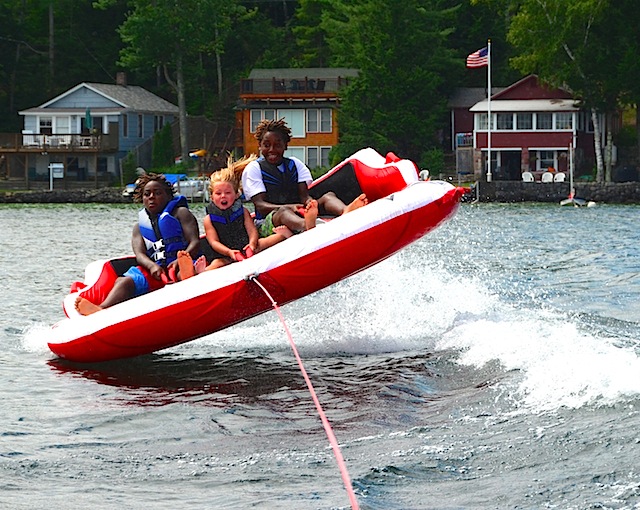
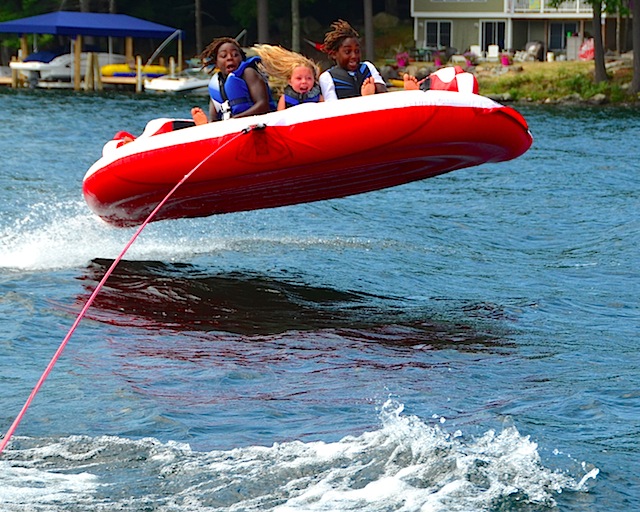
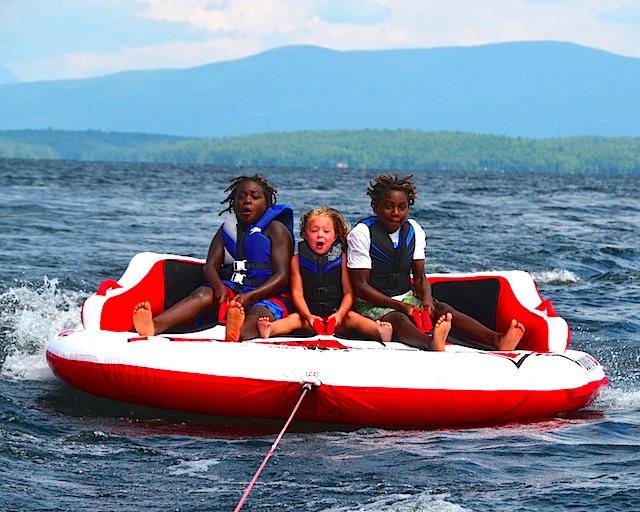
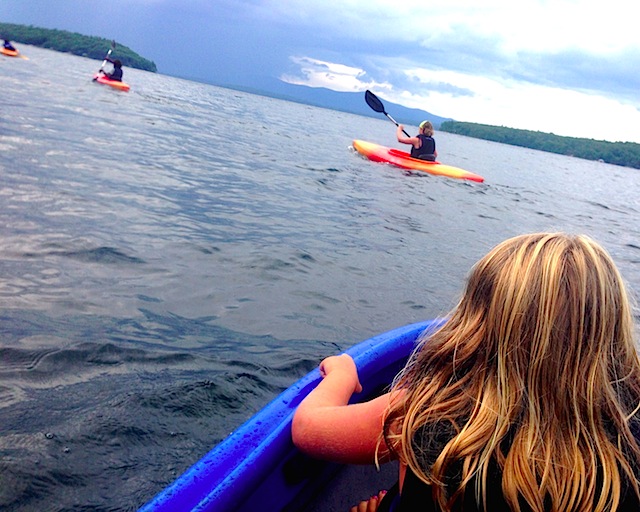
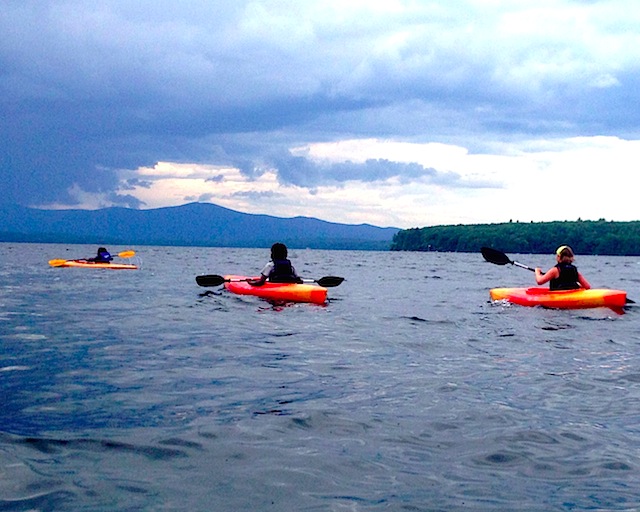

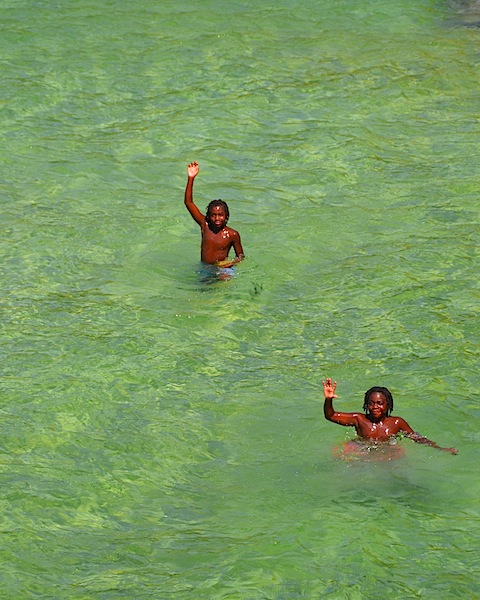
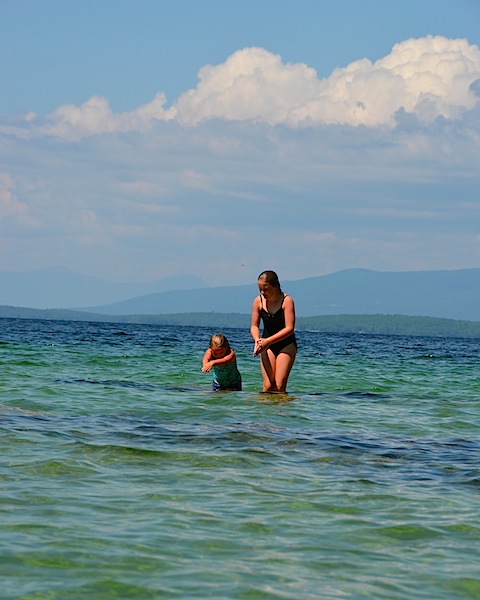
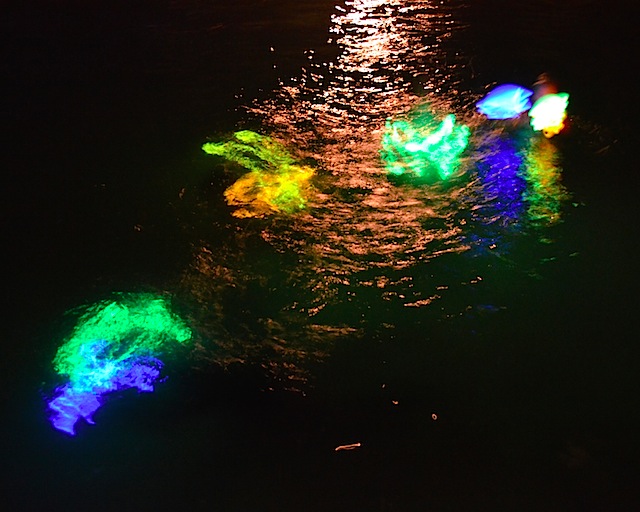
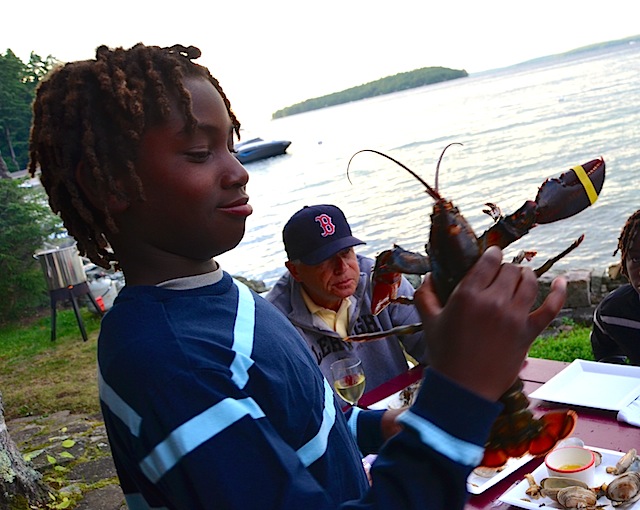
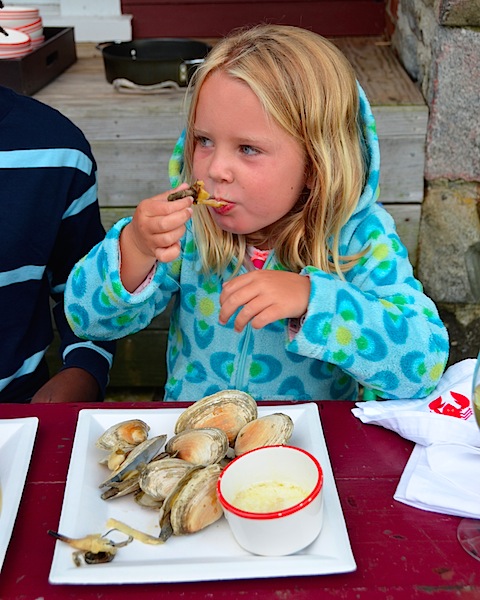
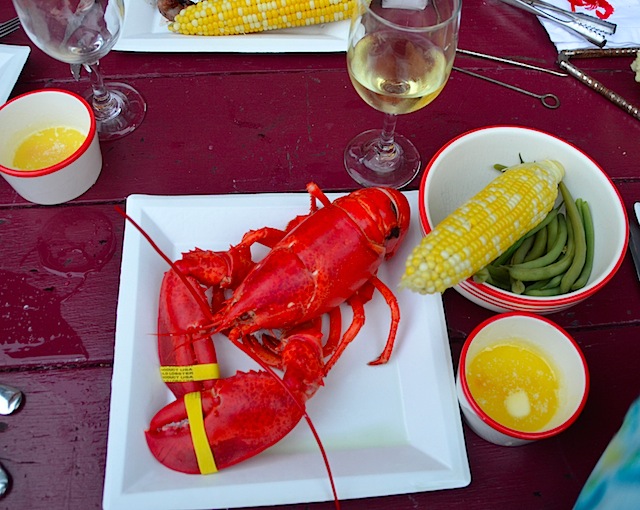
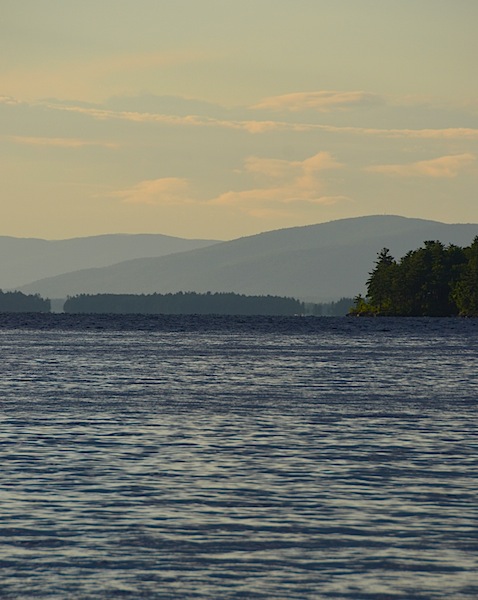
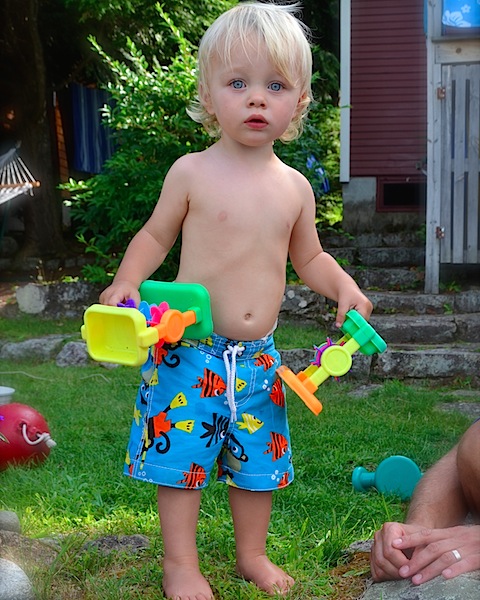
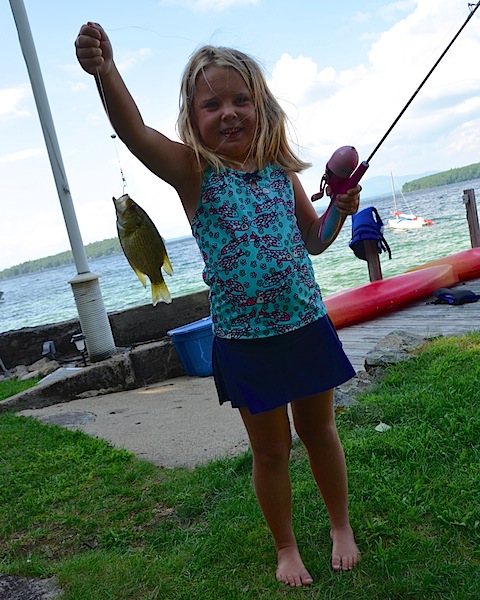

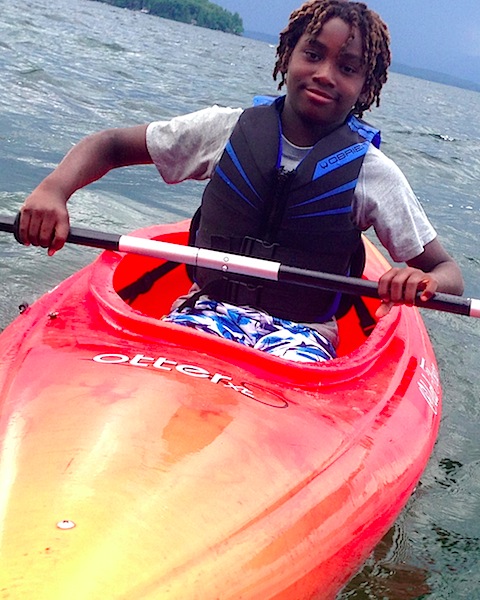

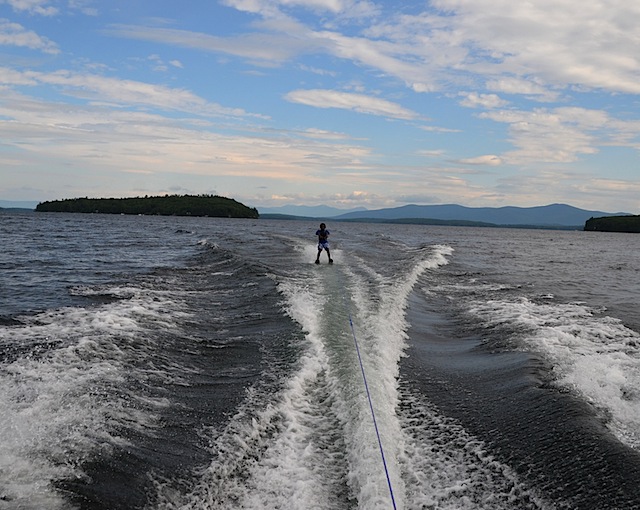
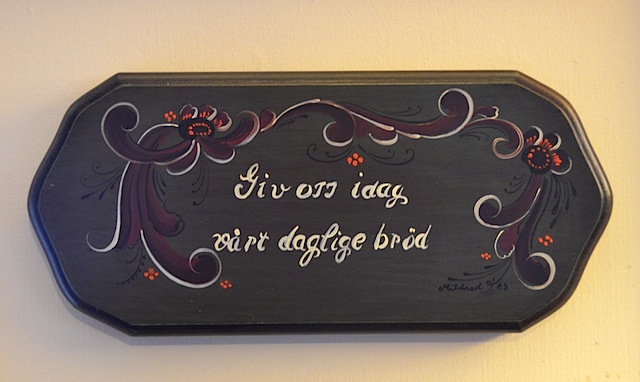
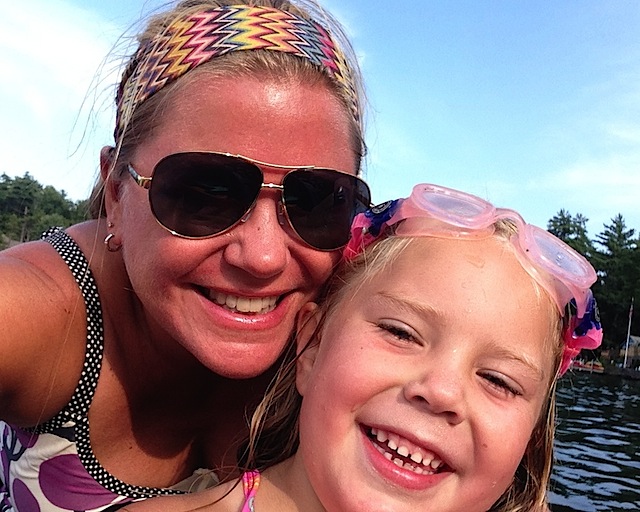


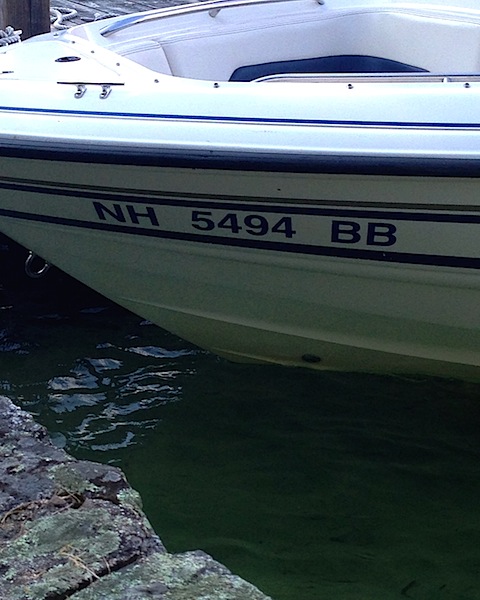


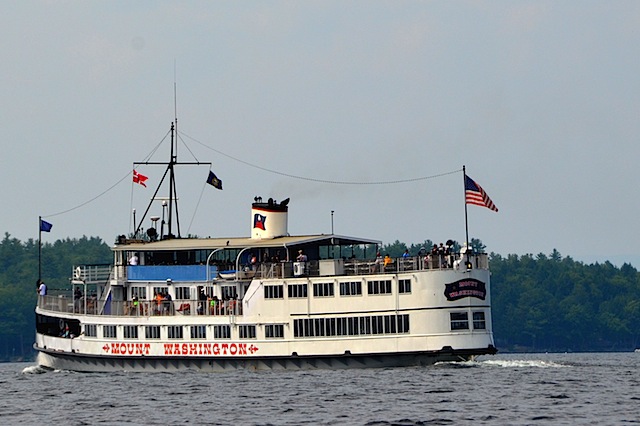
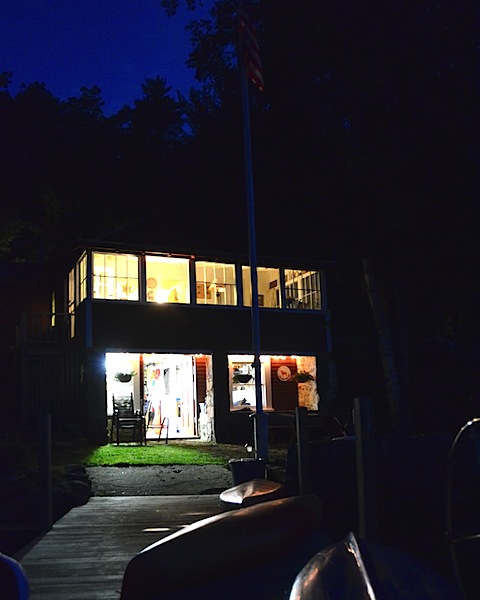


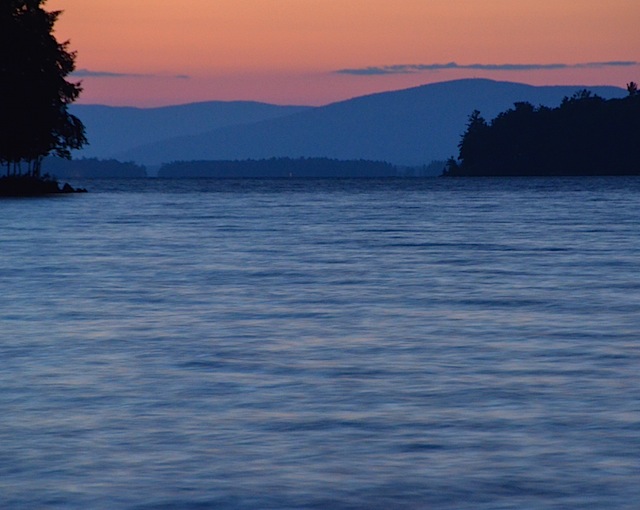
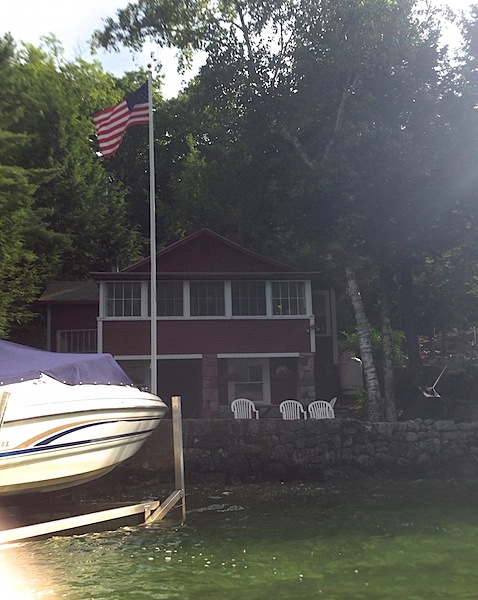
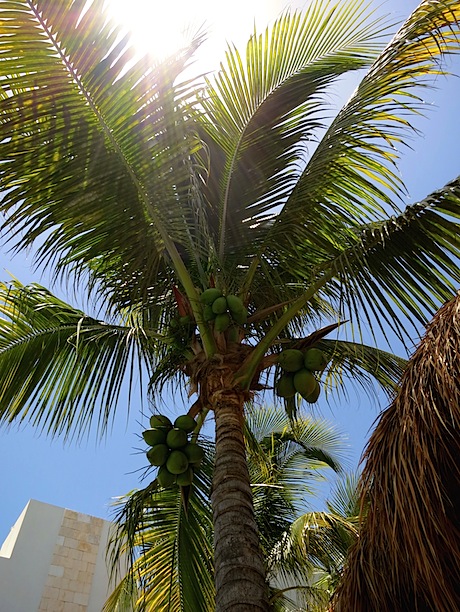
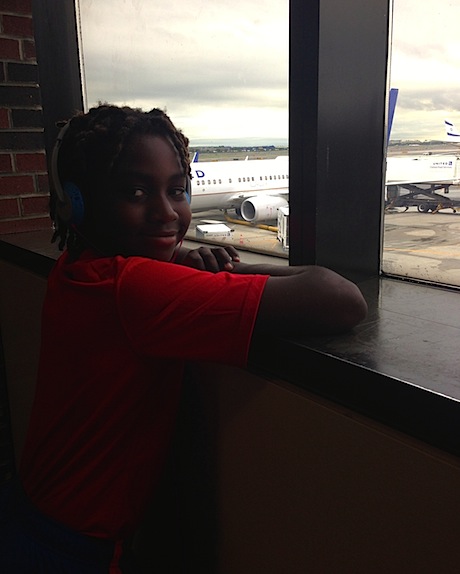
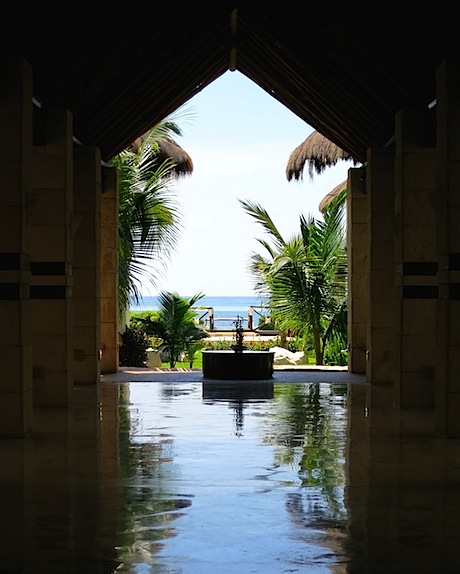

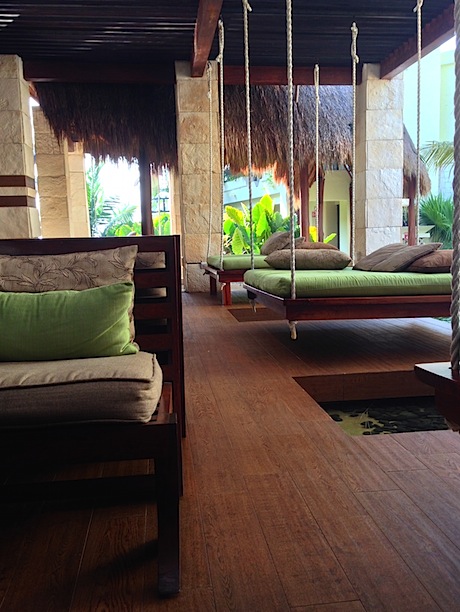


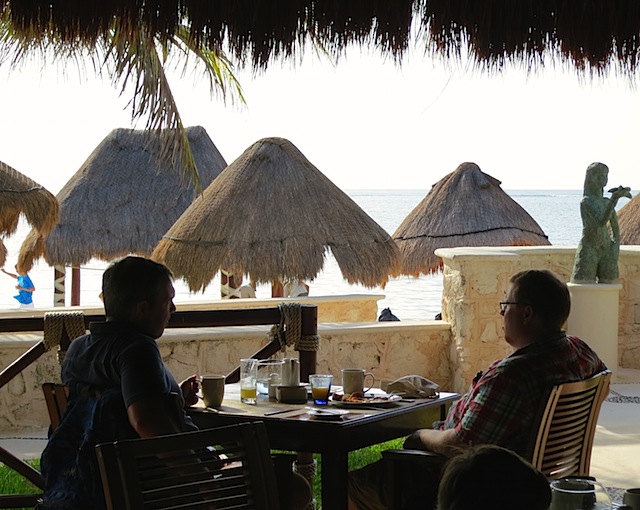


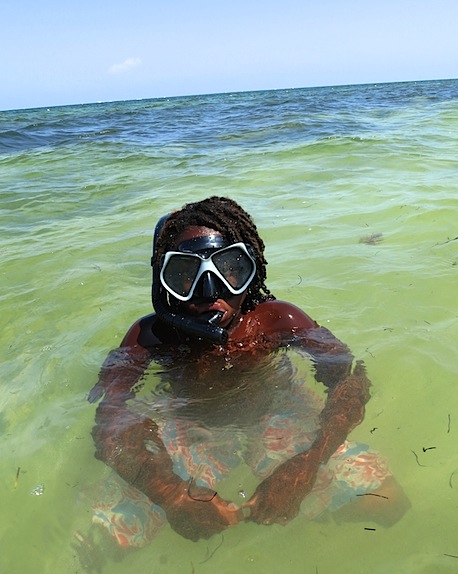
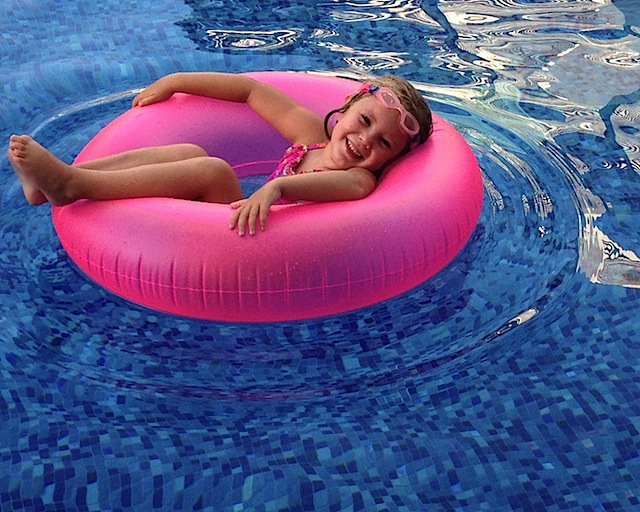
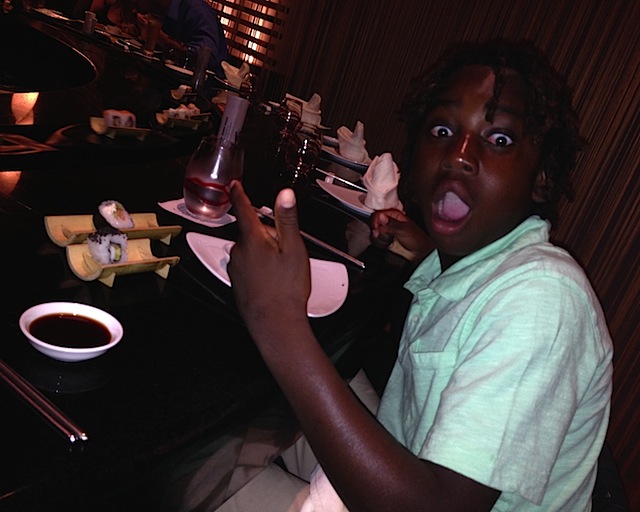
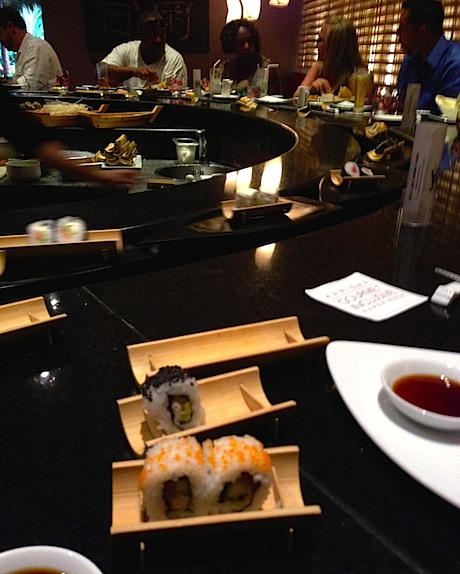
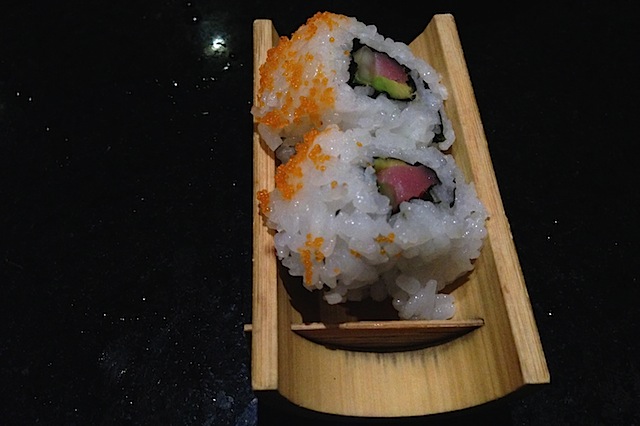
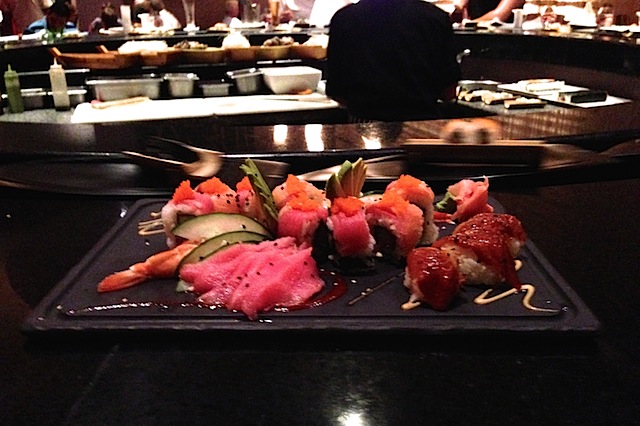
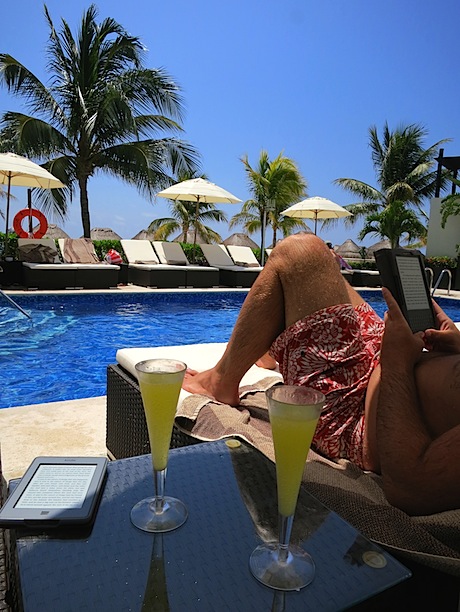

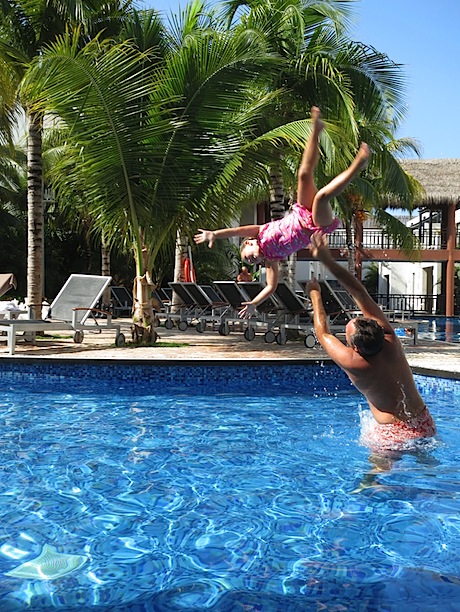
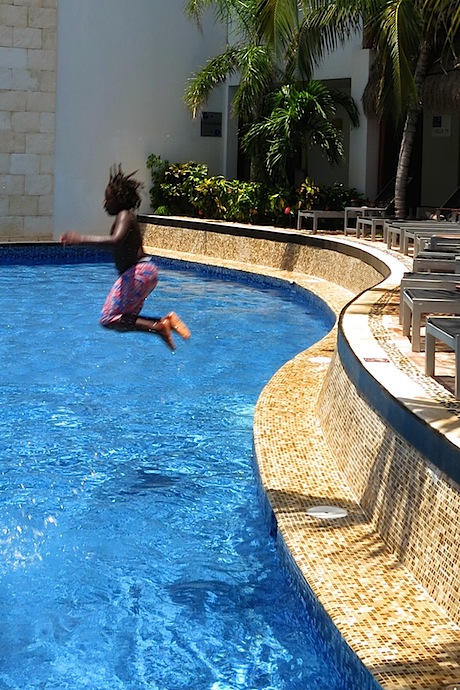
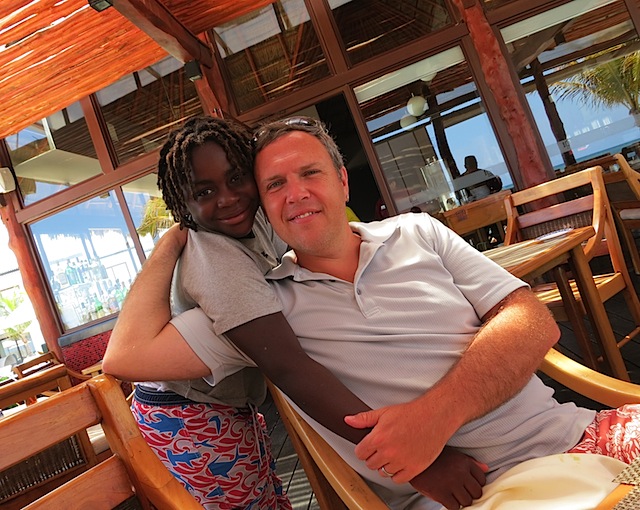
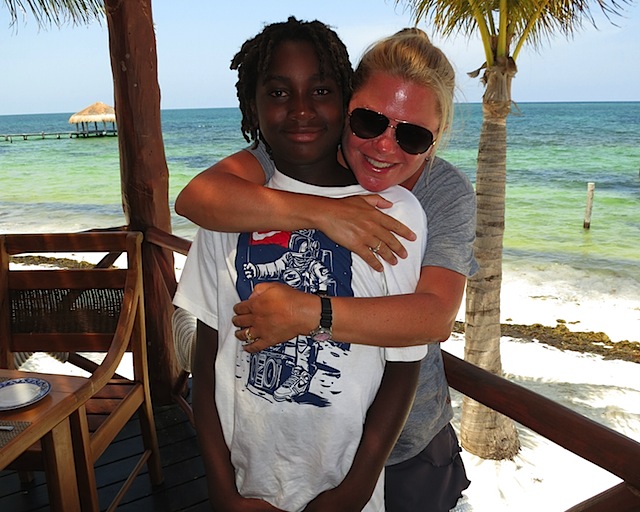
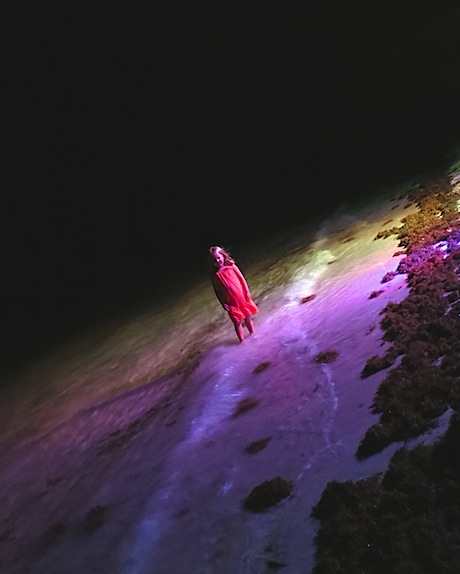
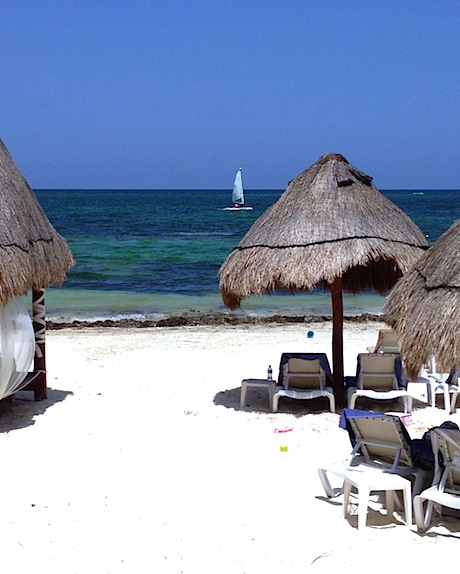
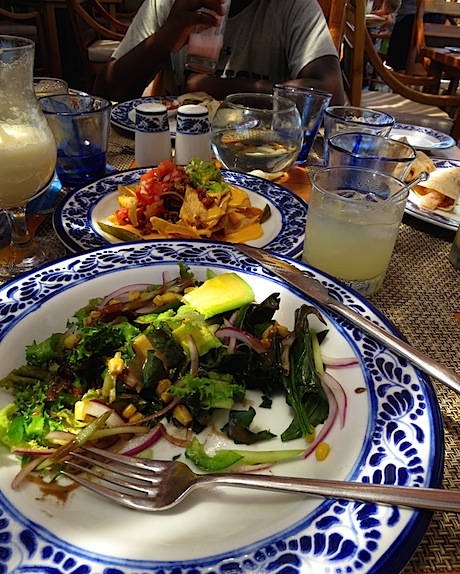
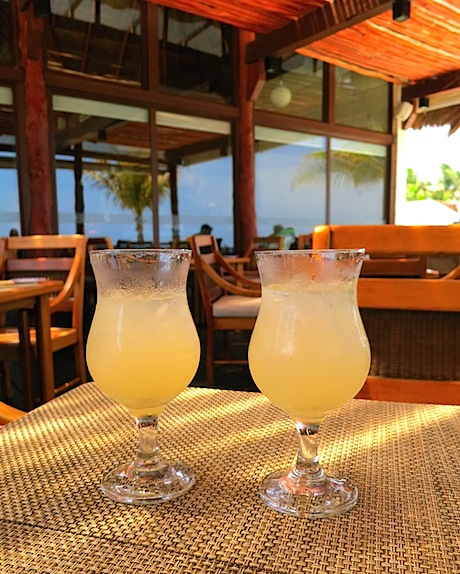

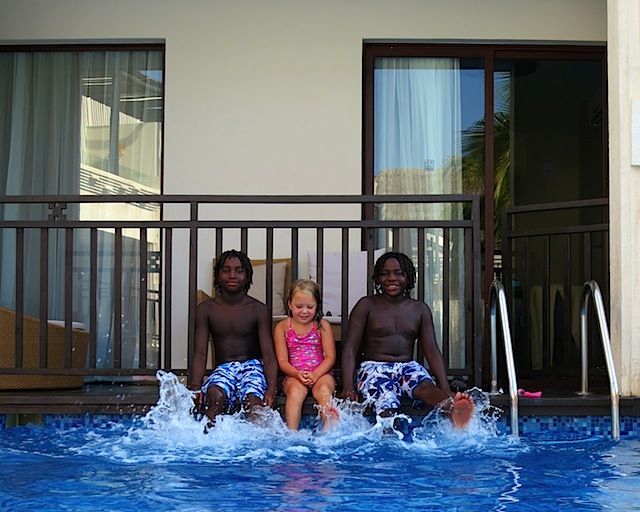

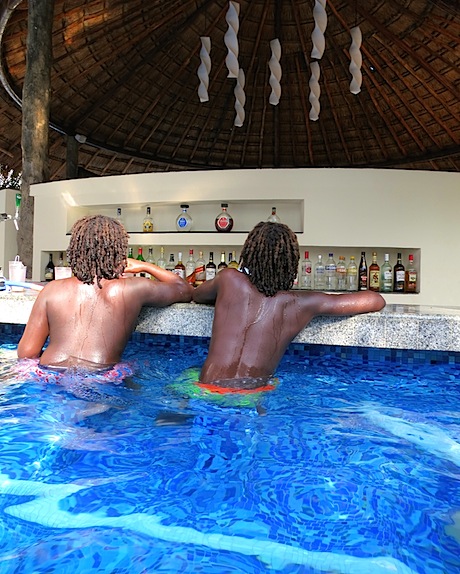
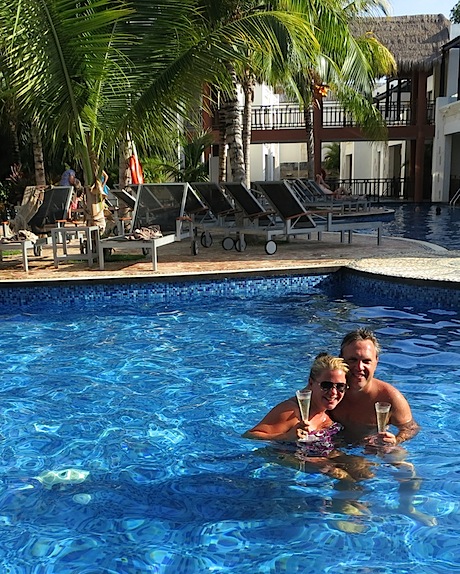
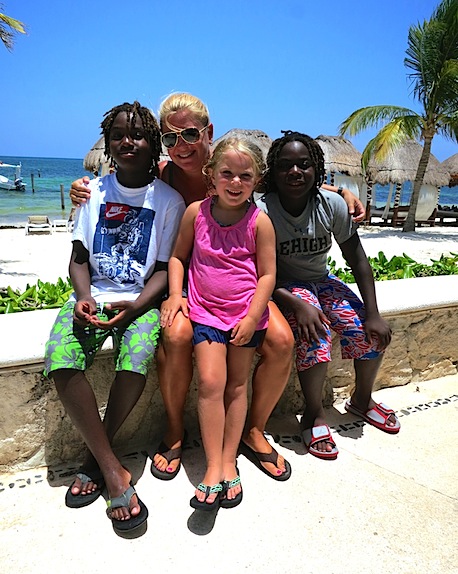
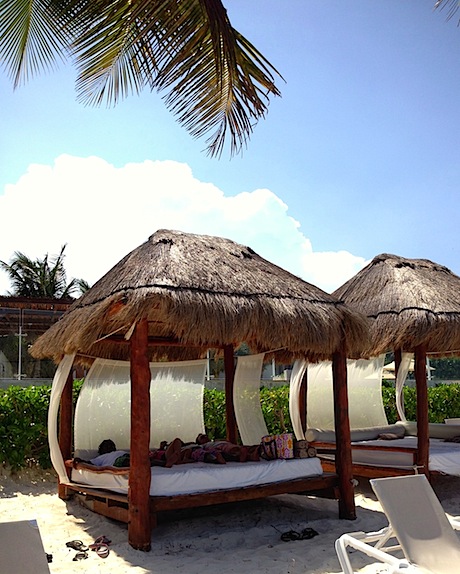
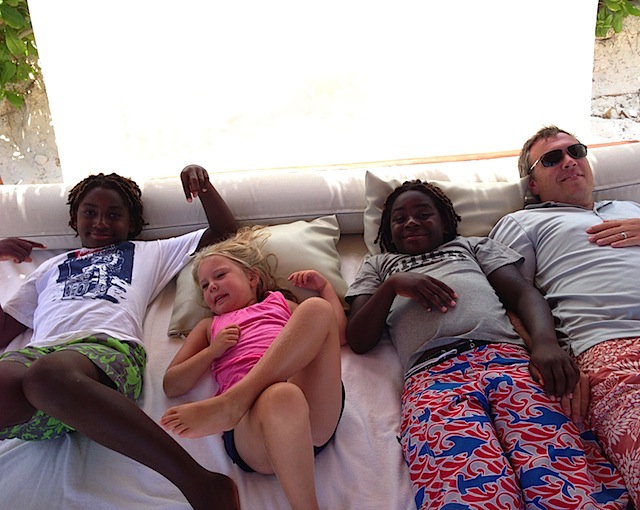
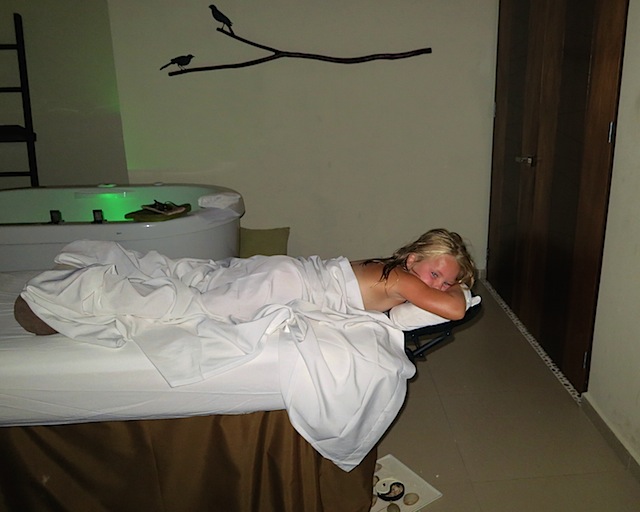
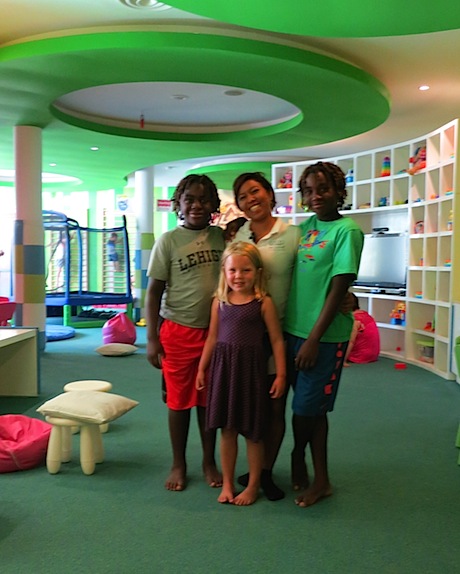
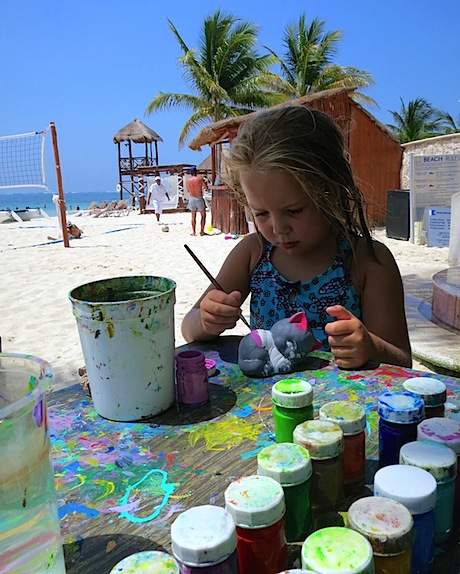
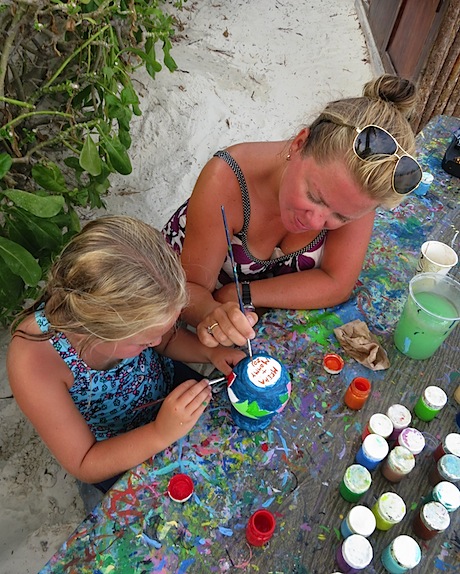
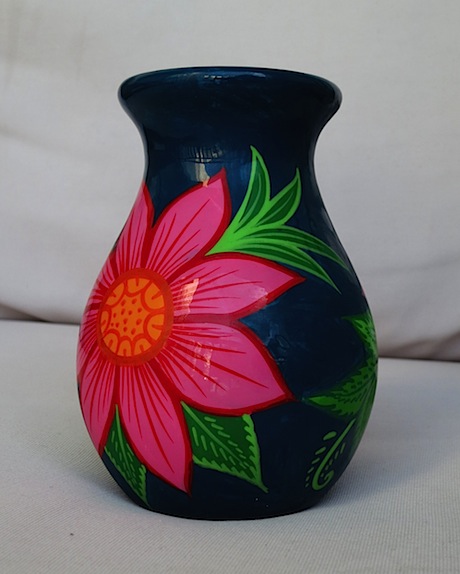
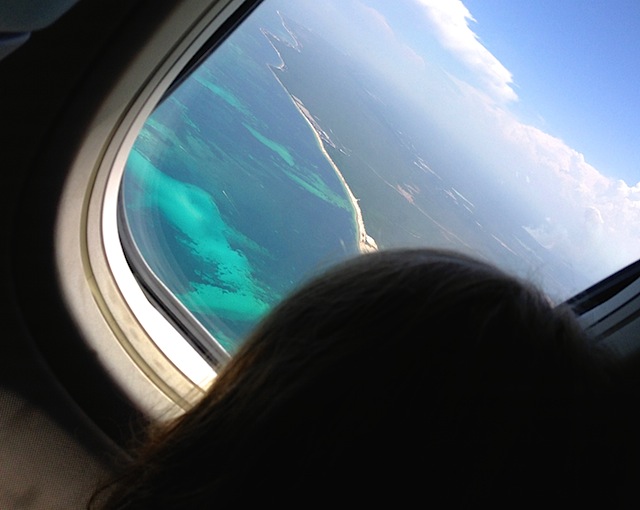
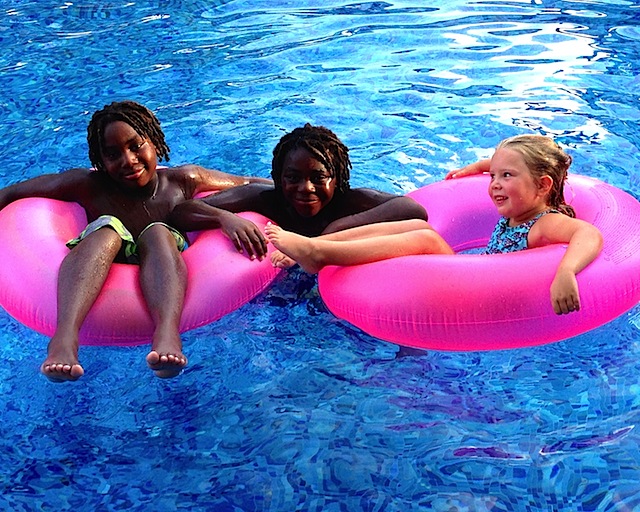
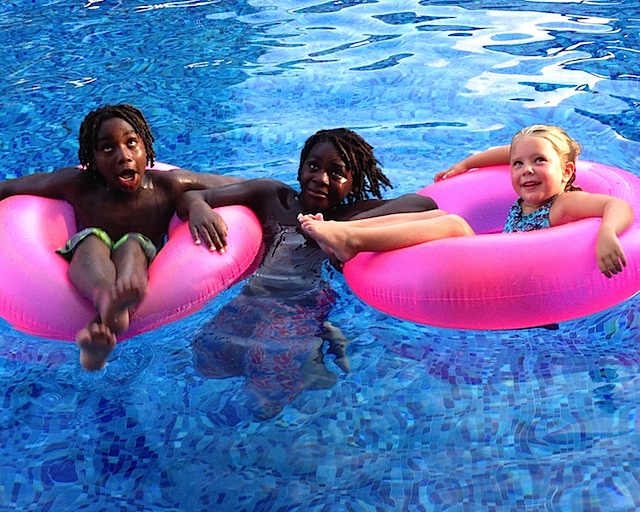
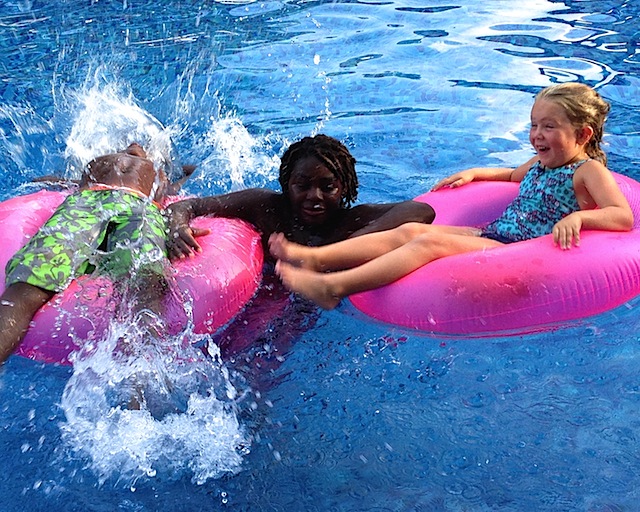

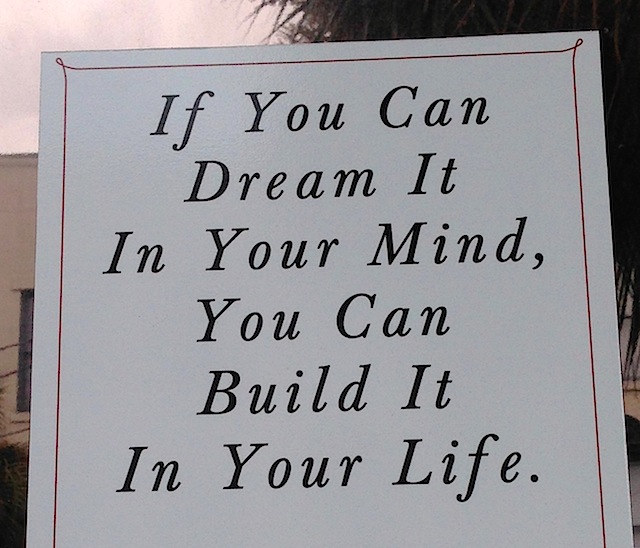
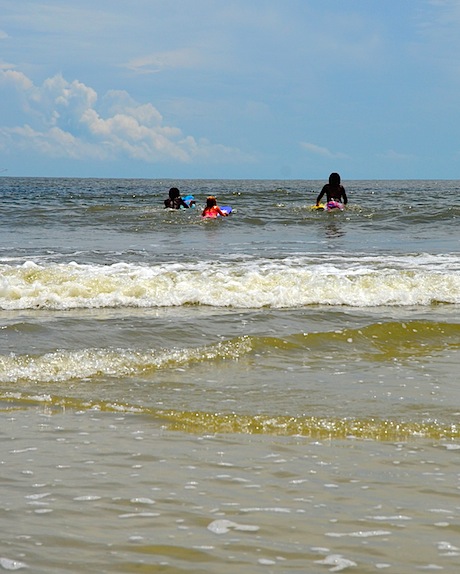
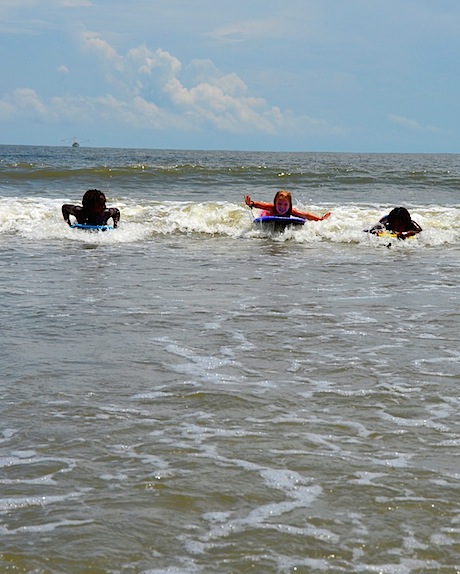
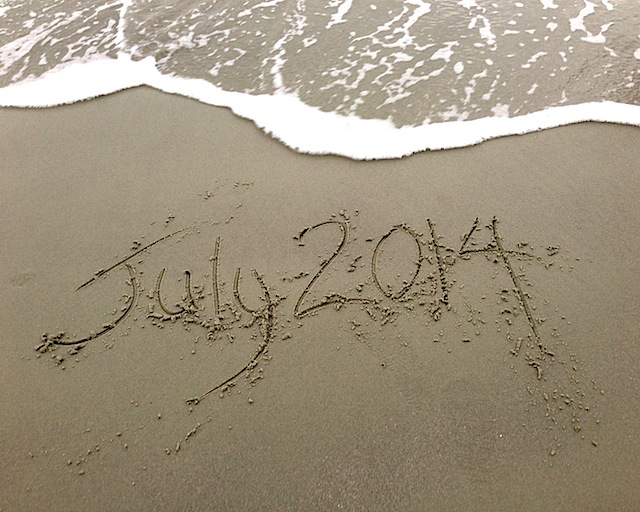
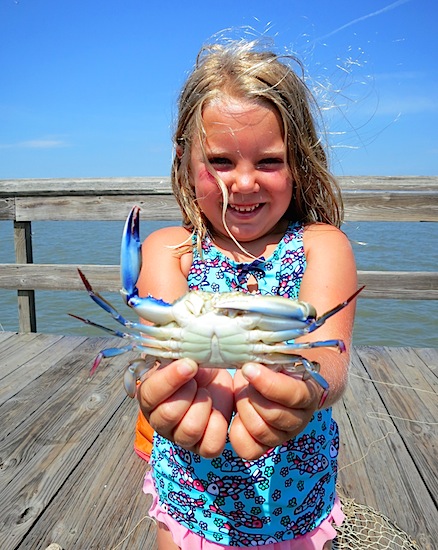
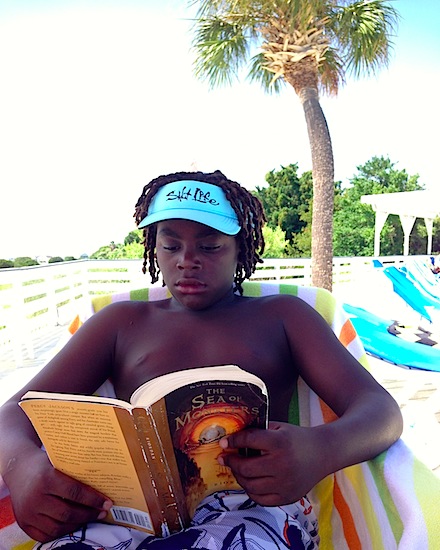
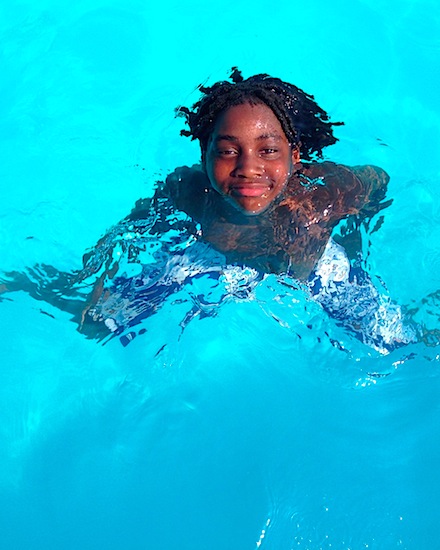
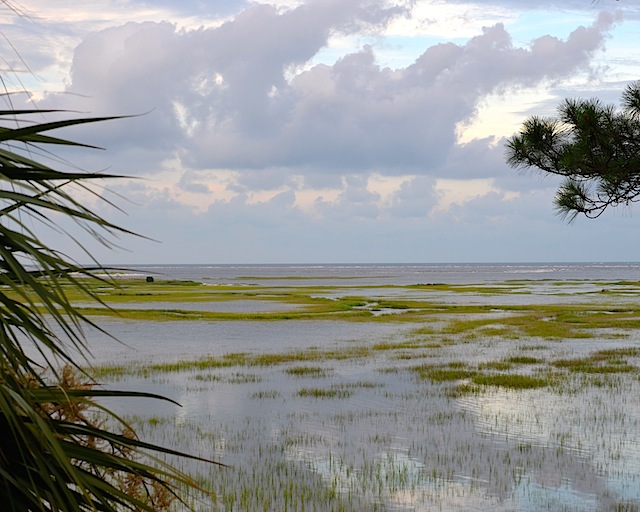
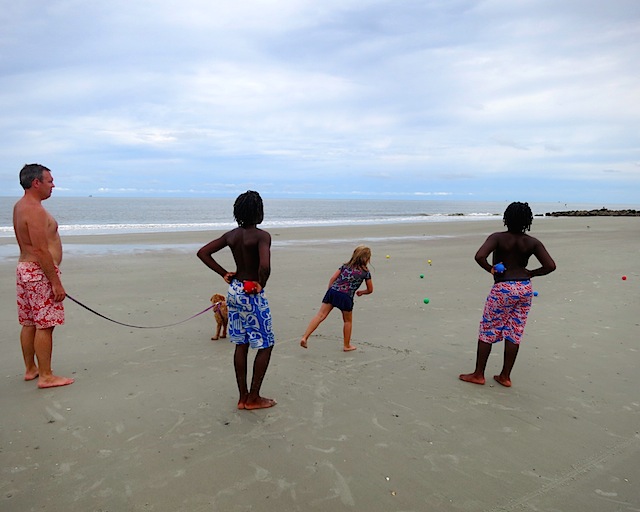
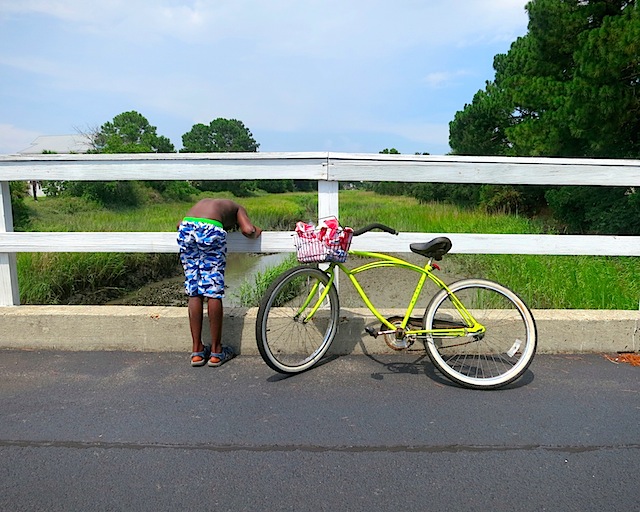
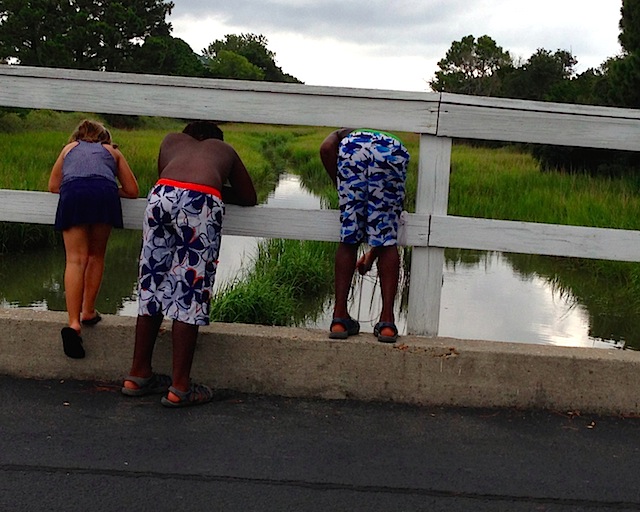
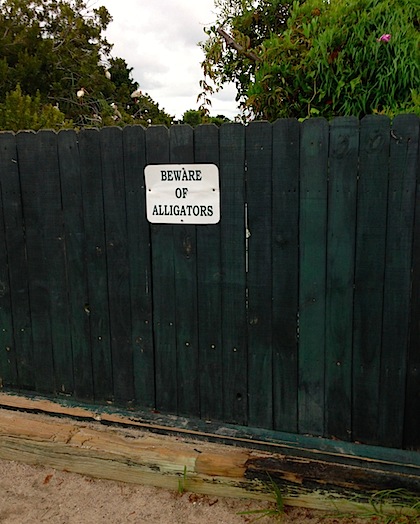
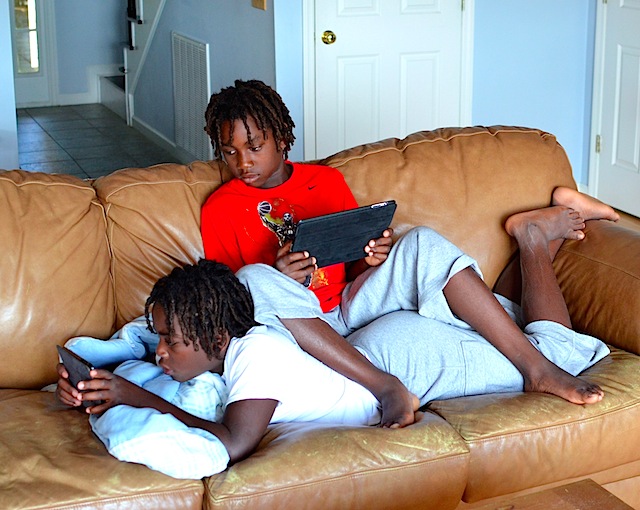
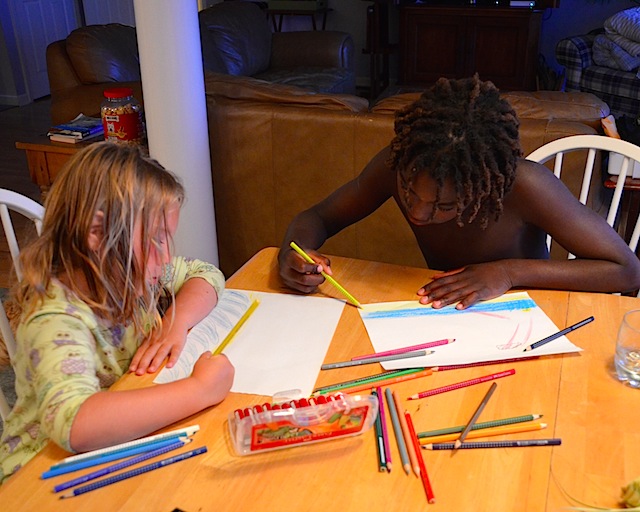


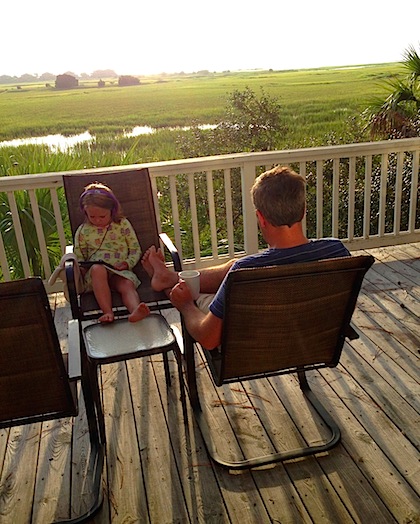

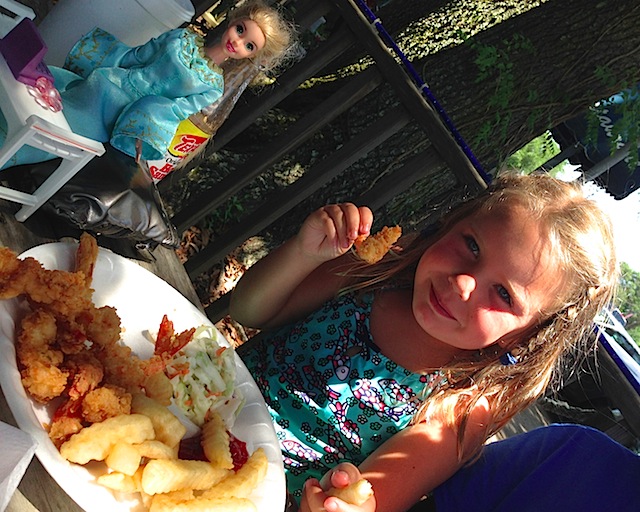
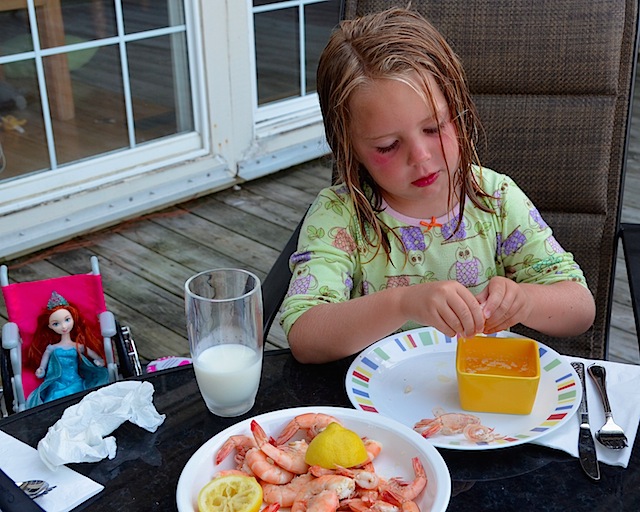
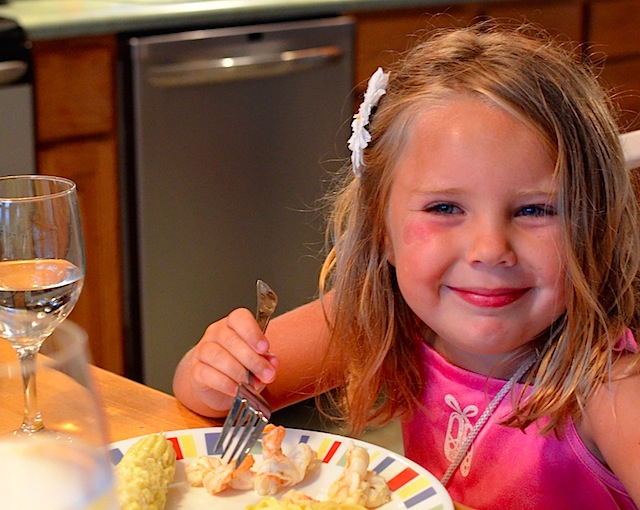

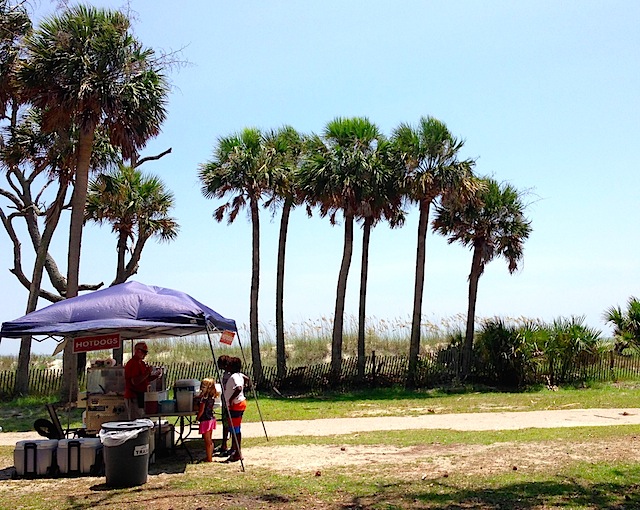
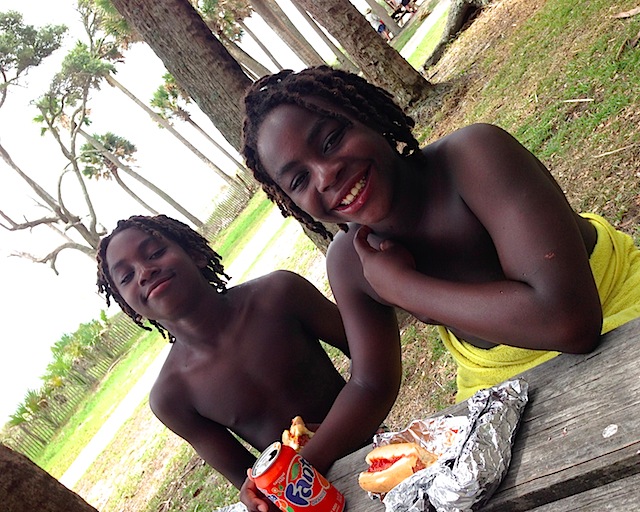
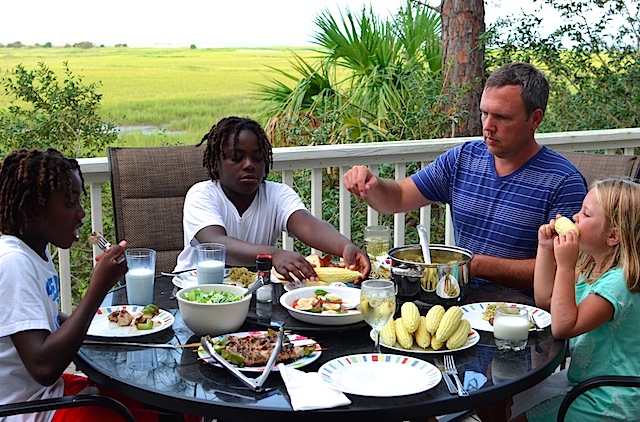
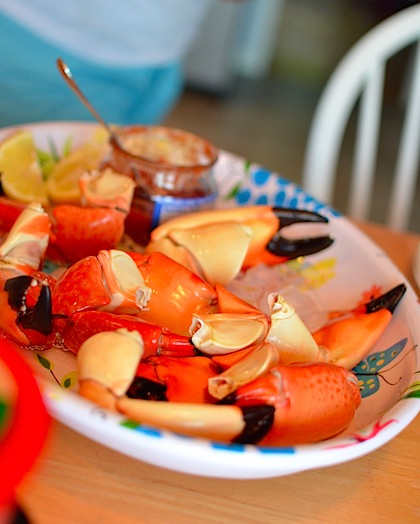

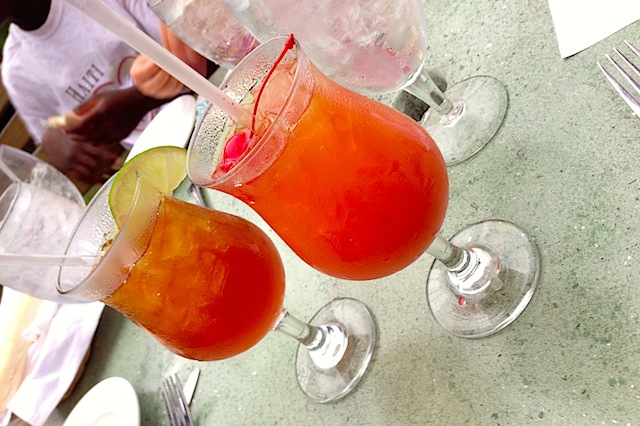
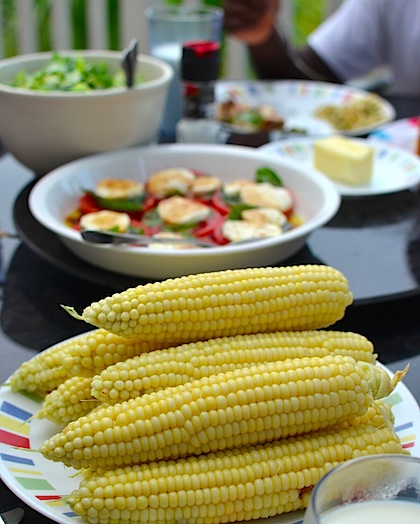
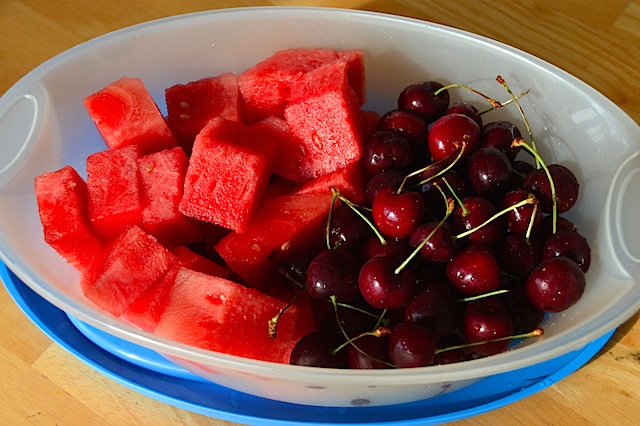
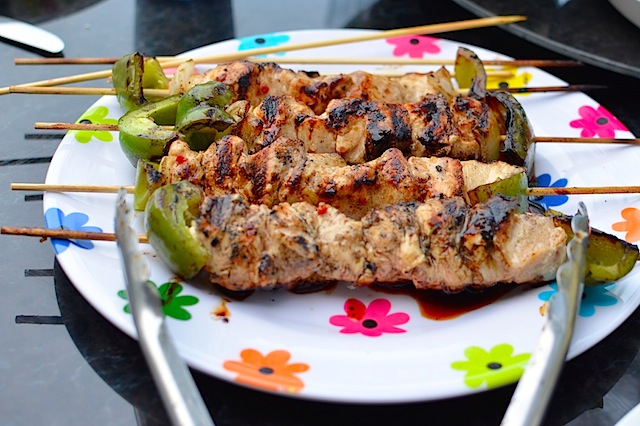

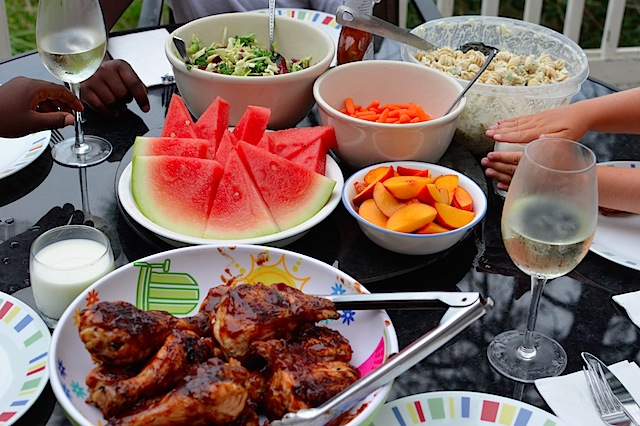
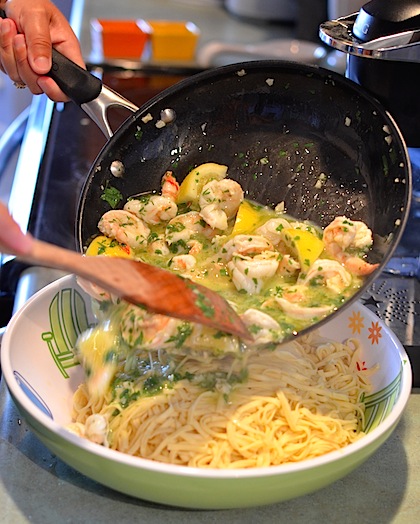
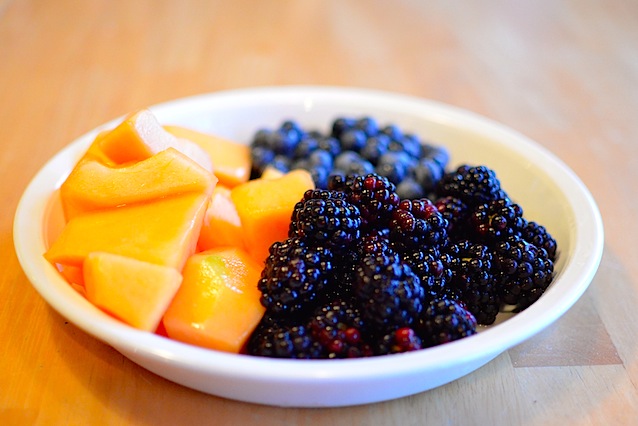
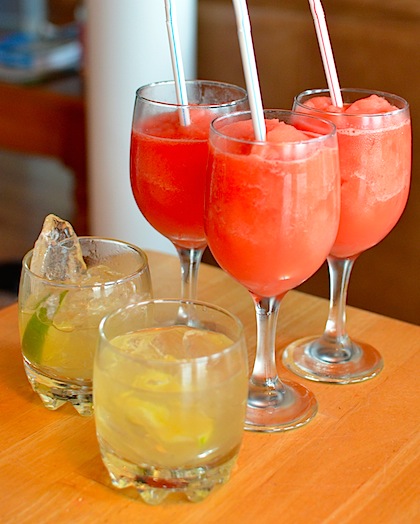


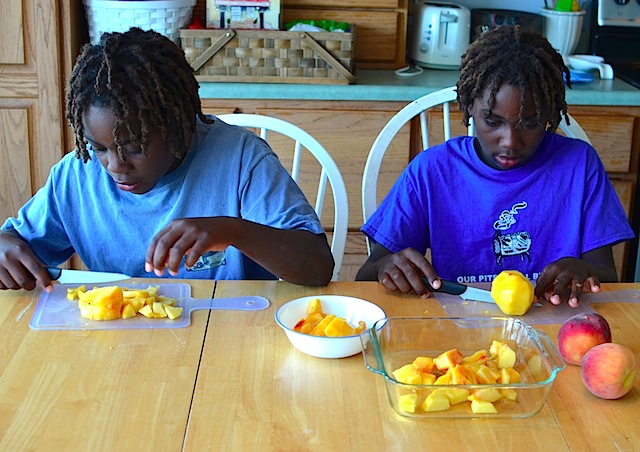
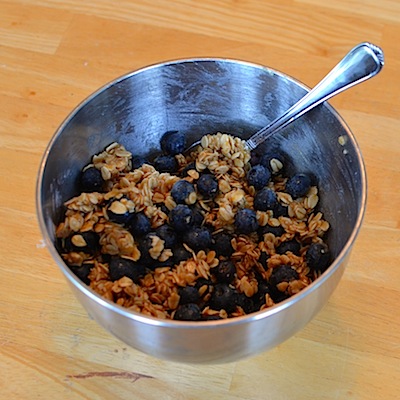

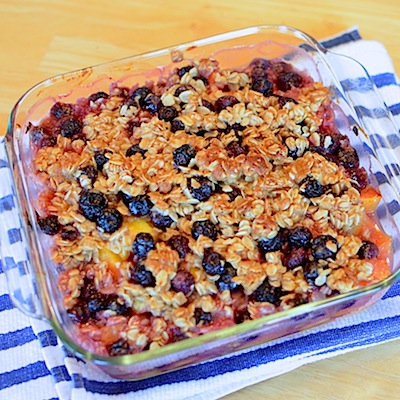
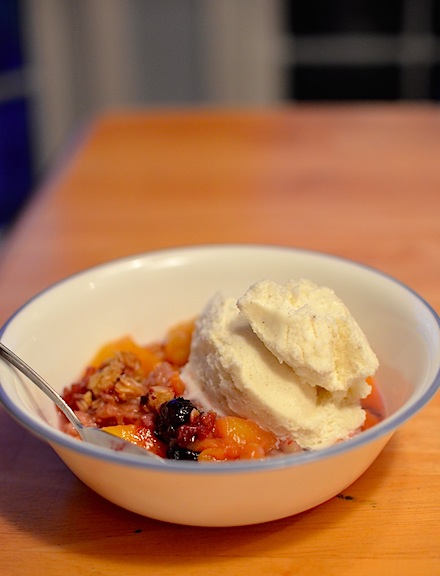


Recent comments